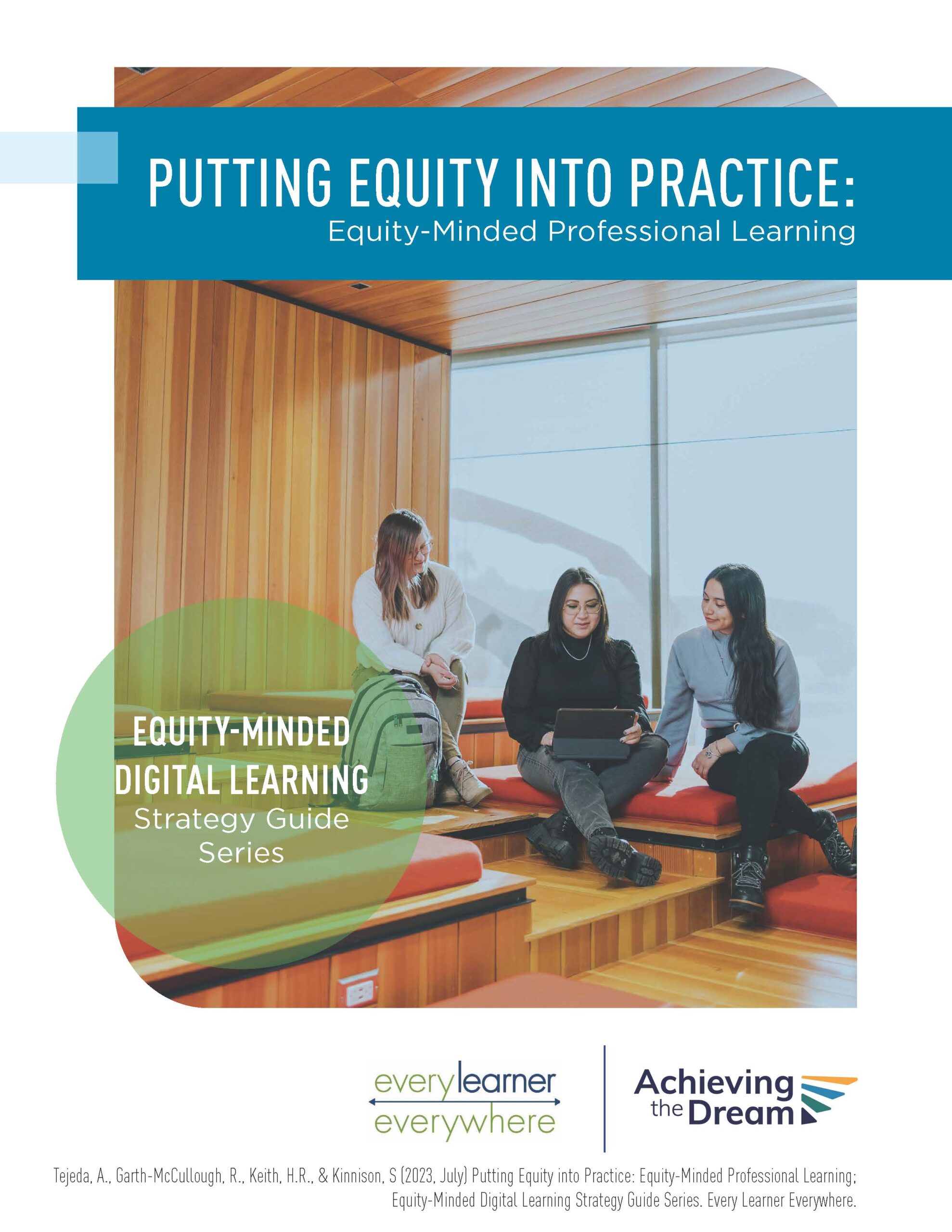
Through professional learning, faculty can develop their capacity to be change agents both inside and outside of the classroom. This guide clarifies what it means to create opportunities for professional learning that are explicitly equity-minded.
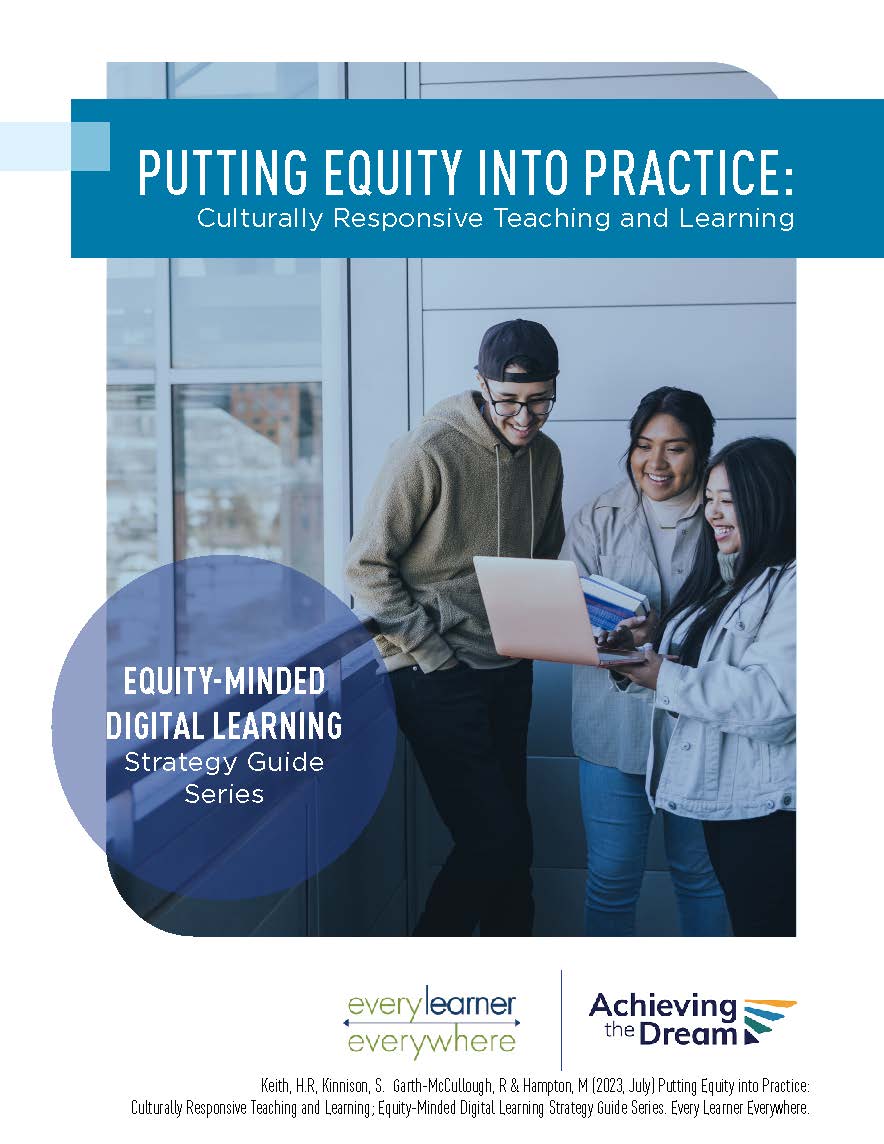
Culturally responsive pedagogy is a framework that is inclusive of culturally responsive and relevant teaching, and culturally affirming and sustaining instructional methodologies that validate and engage students’ cultural identities. These practical instructional strategies and practices guide the implementation of culturally responsive teaching and learning into educational spaces.
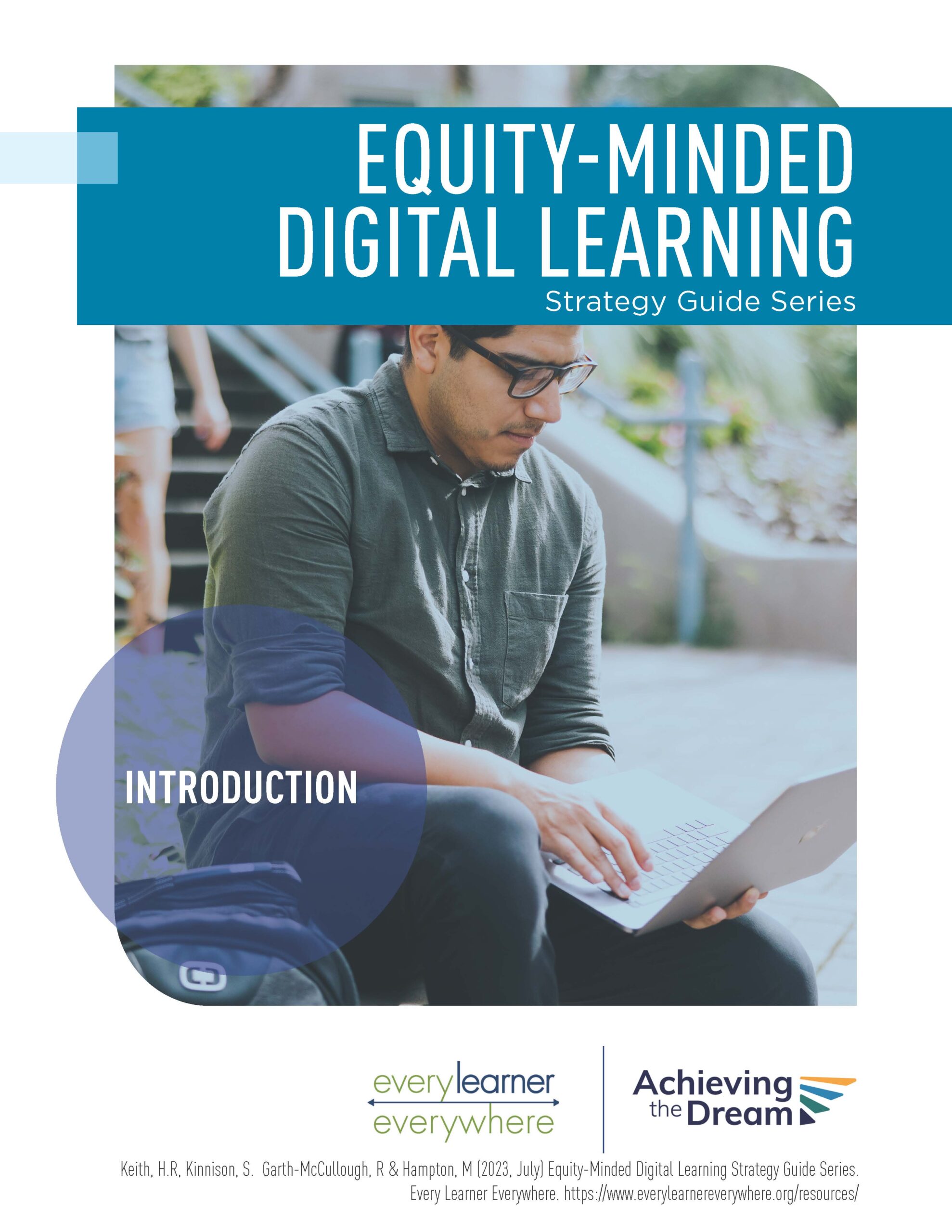
The Equity-Minded Digital Learning Strategy Guides help faculty intentionally and authentically affirm, uplift, and liberate students. As higher education continues to address eliminating inequitable outcomes in teaching and learning, these guides will help institutions embed equity, culturally responsive teaching, social justice education, and open pedagogy through evidence-based teaching practices.
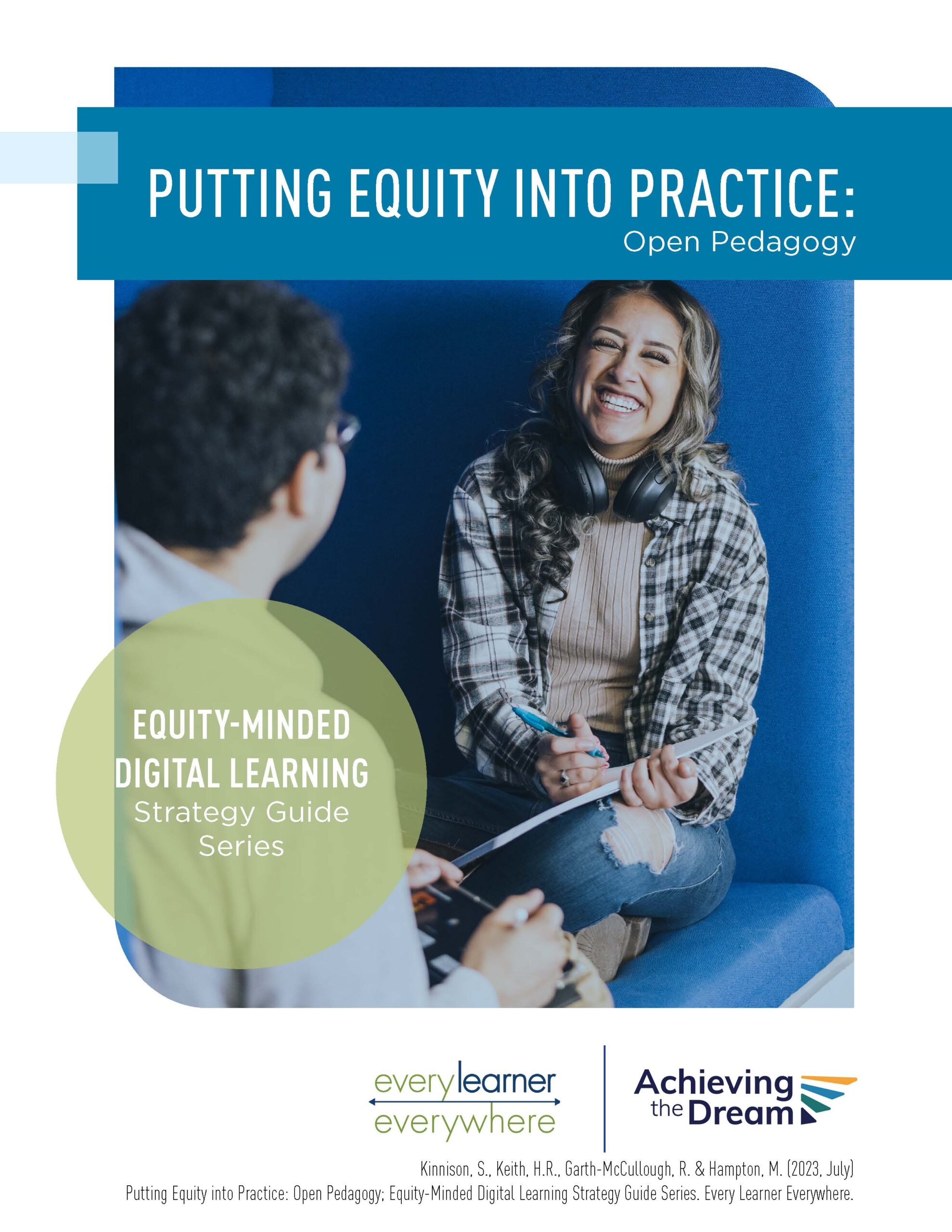
Being able to choose course design, content, assignments, assessments, and instructional approaches based on the context of the learners and the current events of the times allows students to relate all areas of the course to their lives and equitizes their experiences and outcomes. This guide is designed to support faculty with operationalizing open pedagogy through a culturally responsive lens.
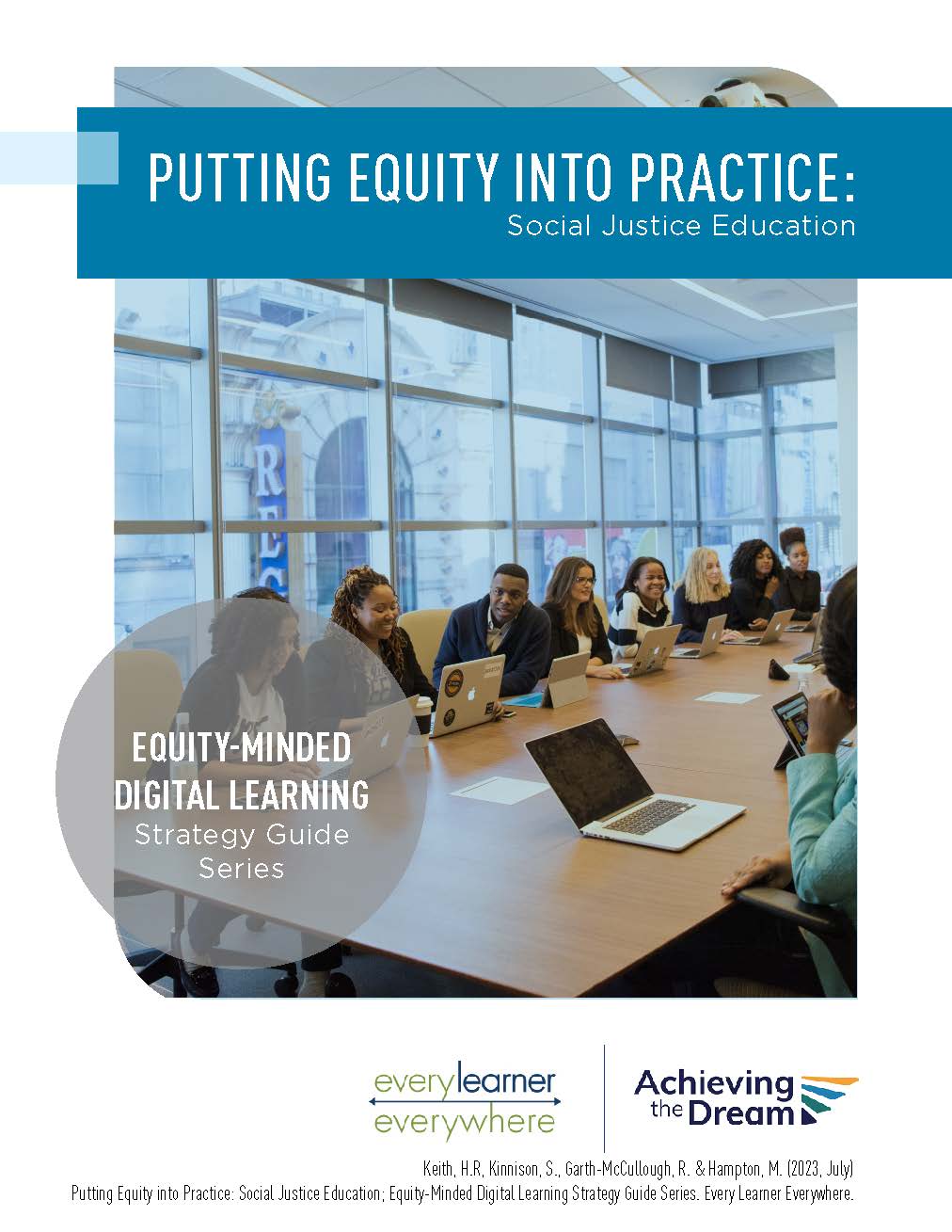
Advancing social justice in education requires establishing educational spaces that foster students’ critical consciousness and ability to analyze systems, policies, and practices that lead to inequitable and unjust experiences and outcomes. A social justice approach to education involves two strategies that will be featured in this guide: anti-racist teaching and abolitionist teaching.
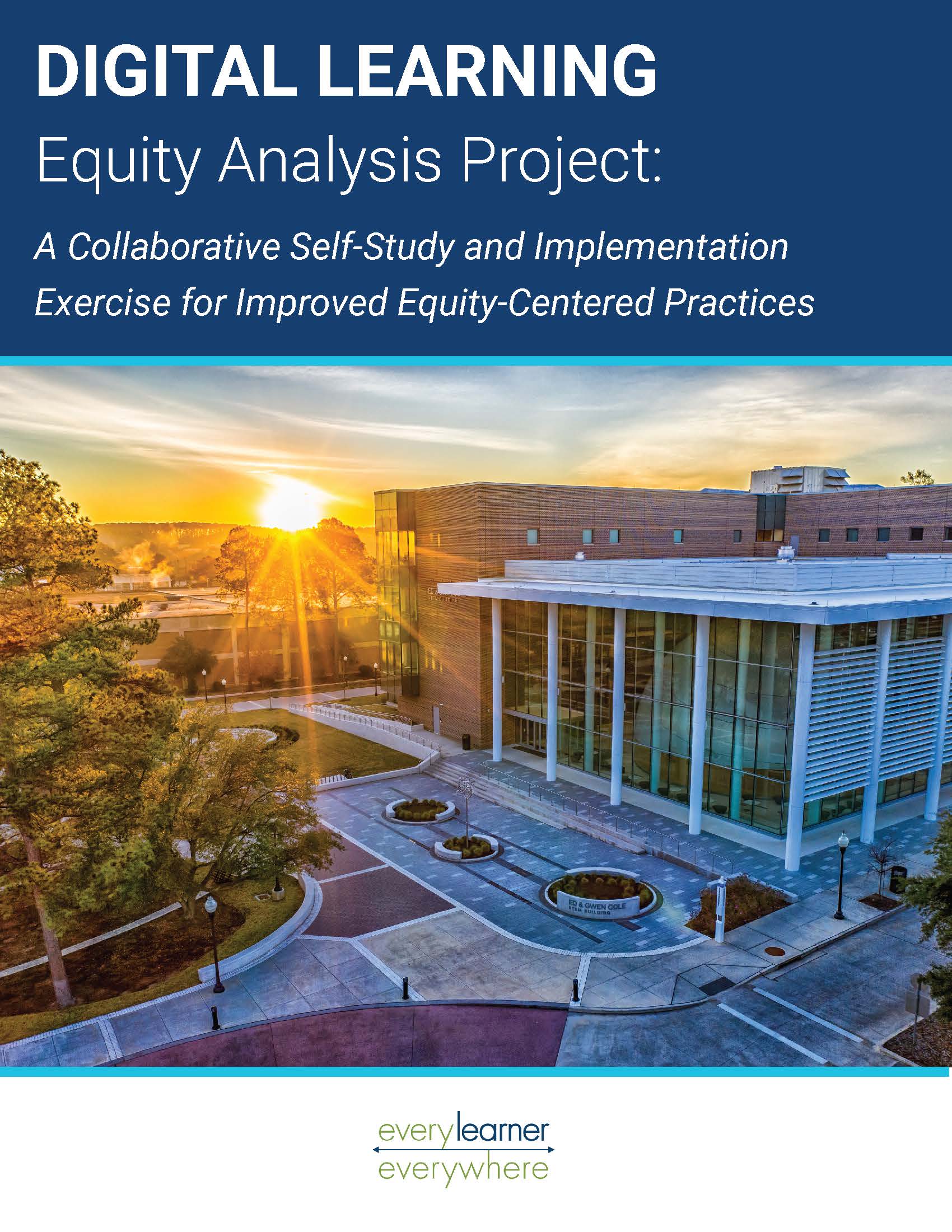
This paper describes the outcomes of a Digital Learning Equity Analysis project undertaken by two award-winning educators, Sarah Straub and Rachel Jumper, who sought to implement suggestions from the microcredential training hosted by Every Learner Everywhere. This training focused on promoting equity in digital learning and provided a structured protocol for conducting reviews of online courses.
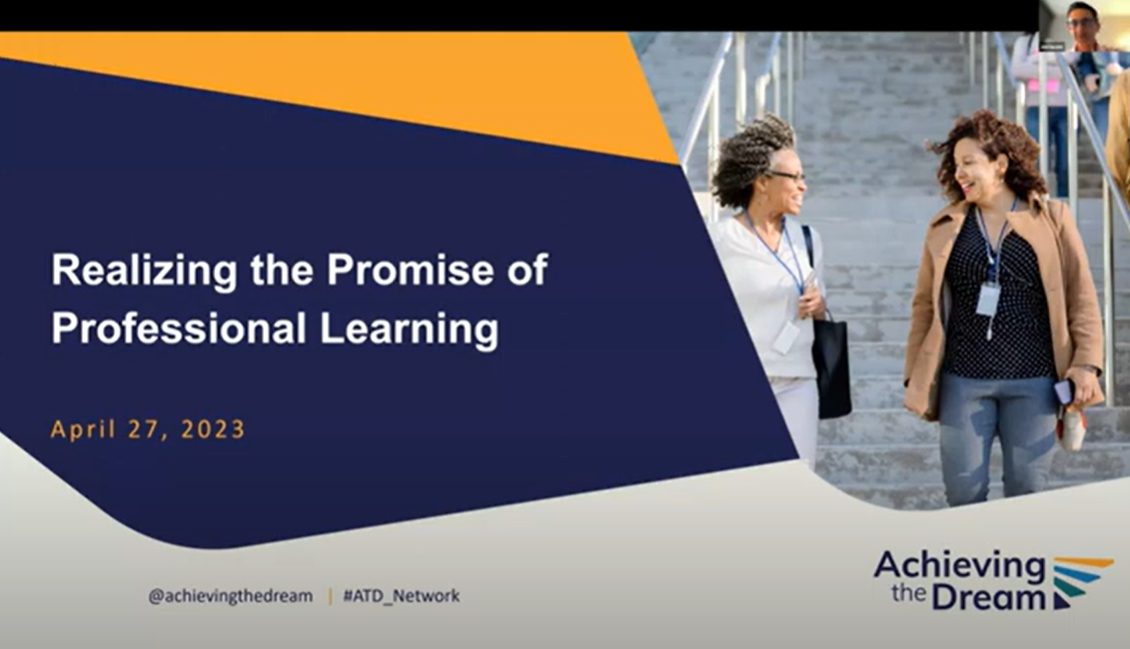
Professional learning, also called Faculty development, in higher education supports student success at the course level.
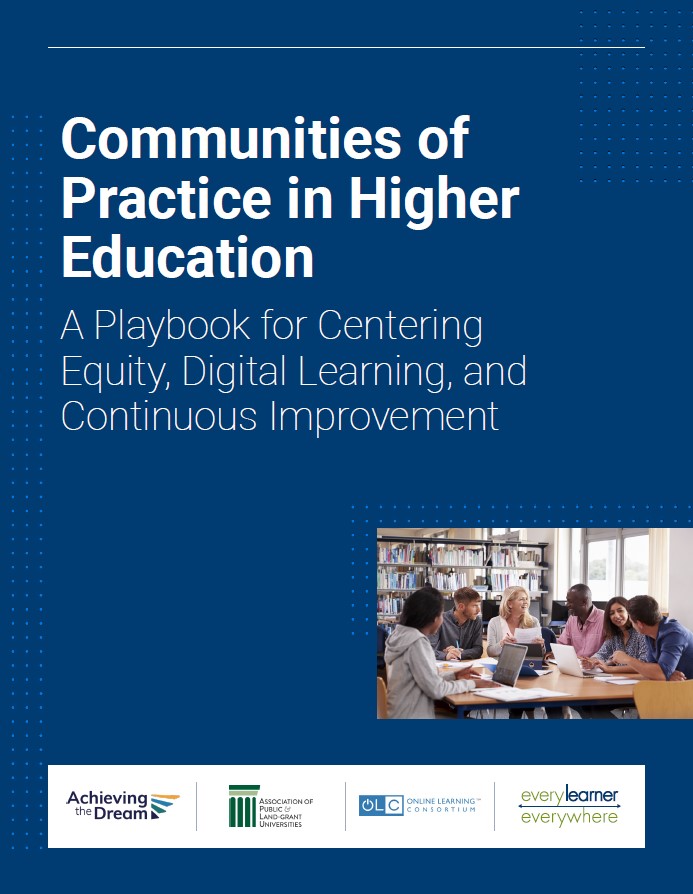
This playbook provides guidance on how to envision, design, facilitate, evaluate, and sustain faculty communities of practice.
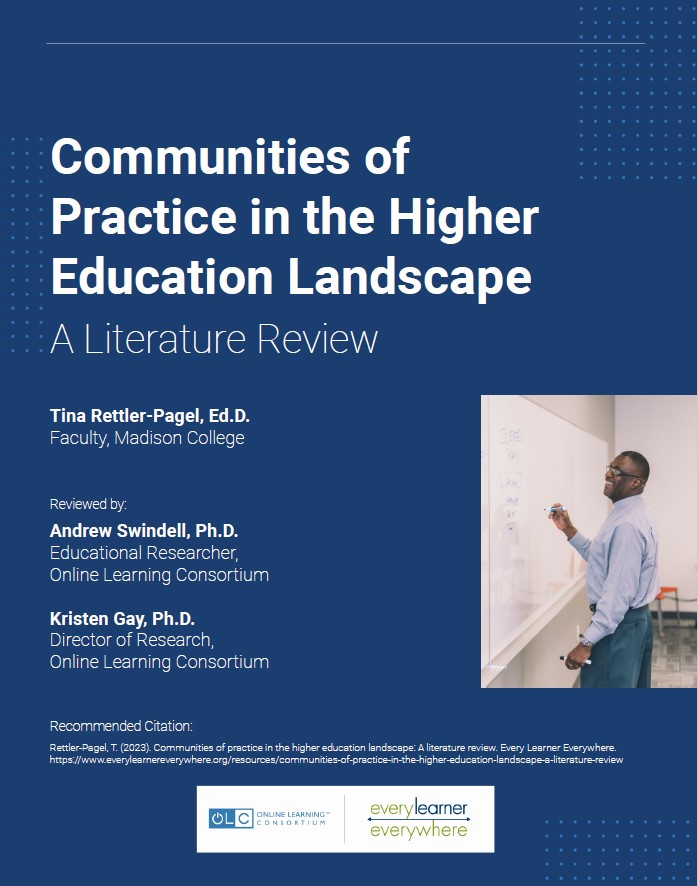
This literature review examines research concerning communities of practice serving as professional development for teaching faculty.
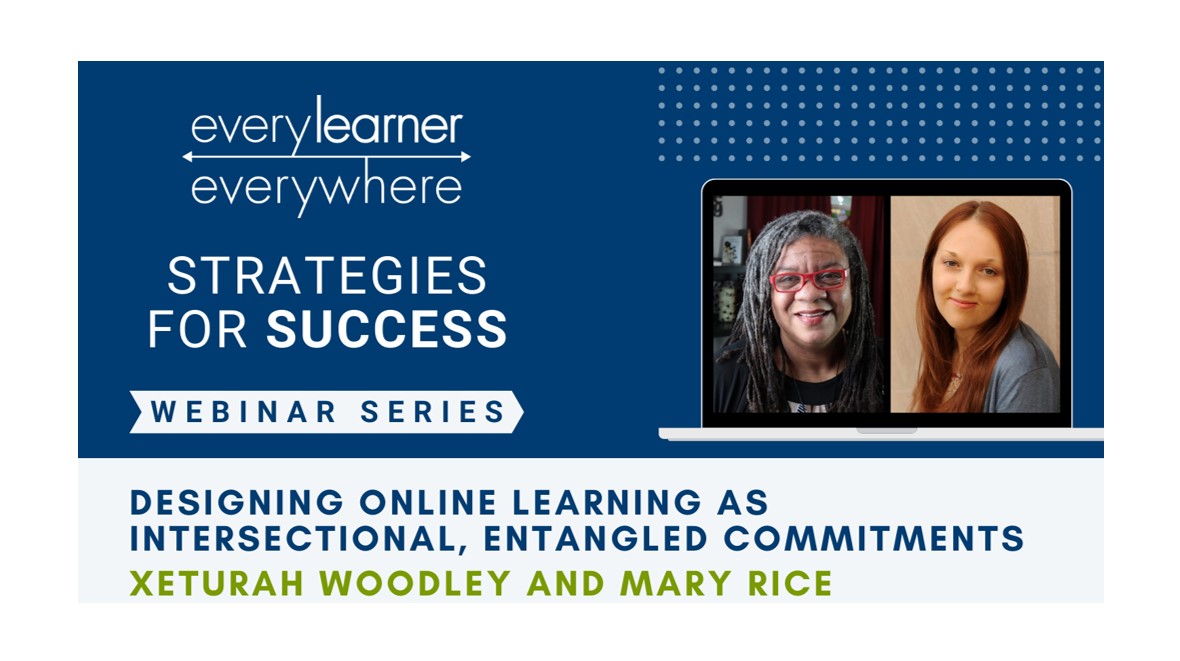
Dr. Mary Rice and Dr. Xeturah Woodley engage in a conversation about the renewal that emerges alongside intersectional online course design.
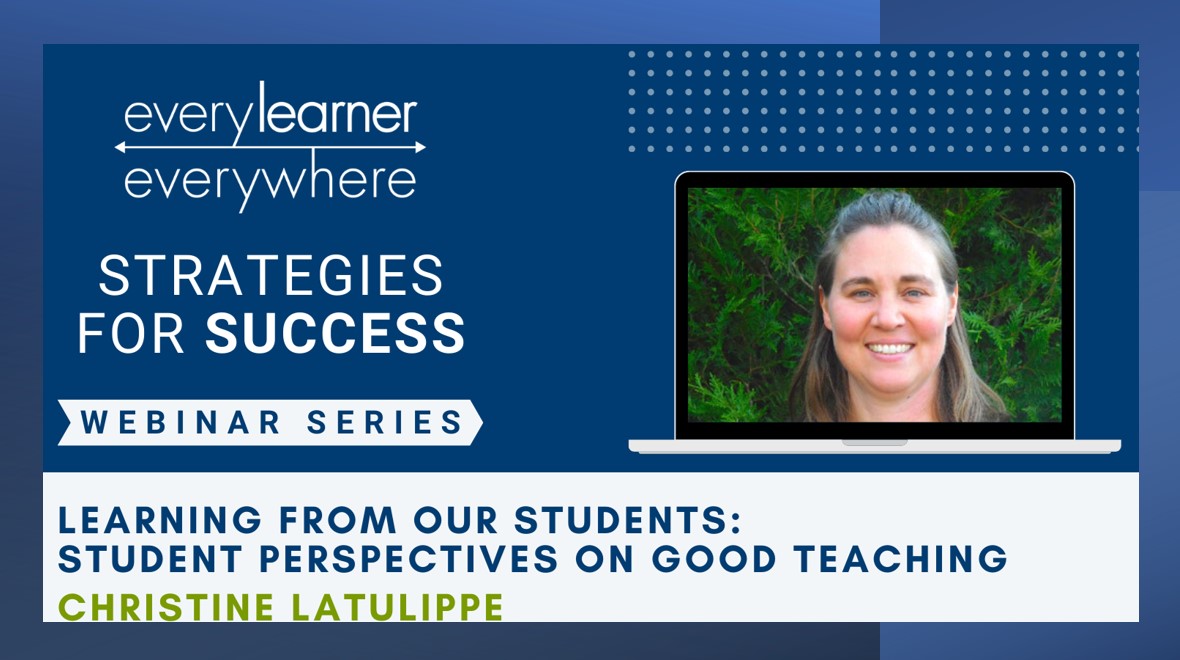
Dr. Christine Latulippe shares her findings from student stories about what good teaching looks like and feels like to them.
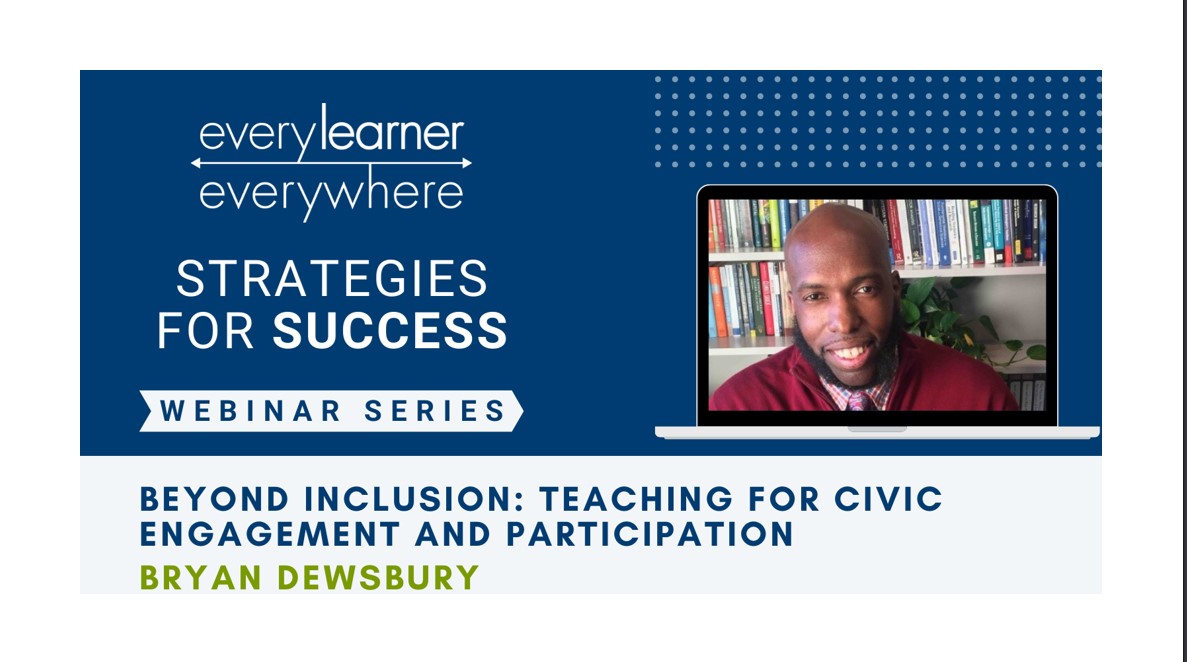
Dr. Bryan Dewsbury discusses reconnecting classroom practice with the values, behaviors and mindsets needed for a socially just society.
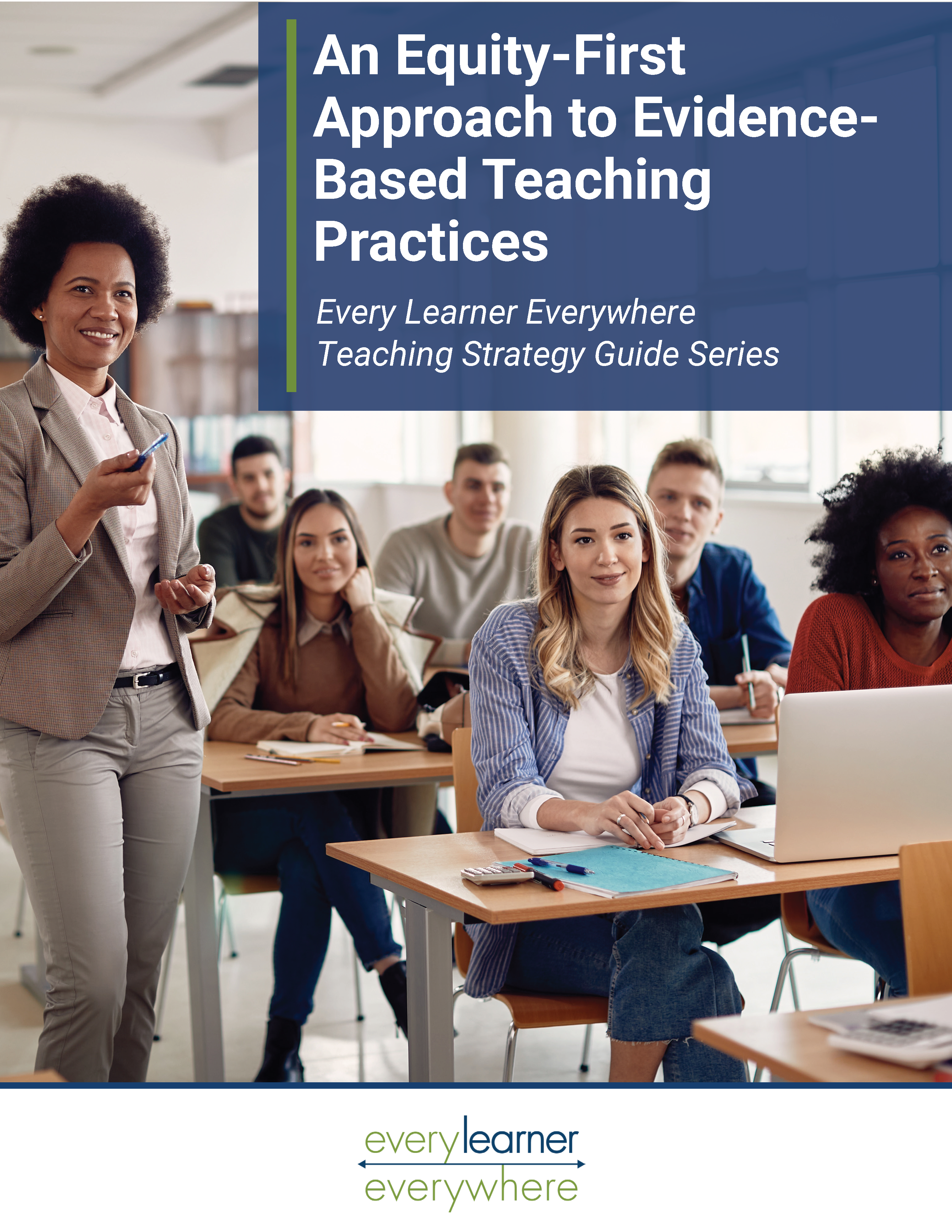
This guide reviews evidence-based teaching practices that benefit minoritized students.
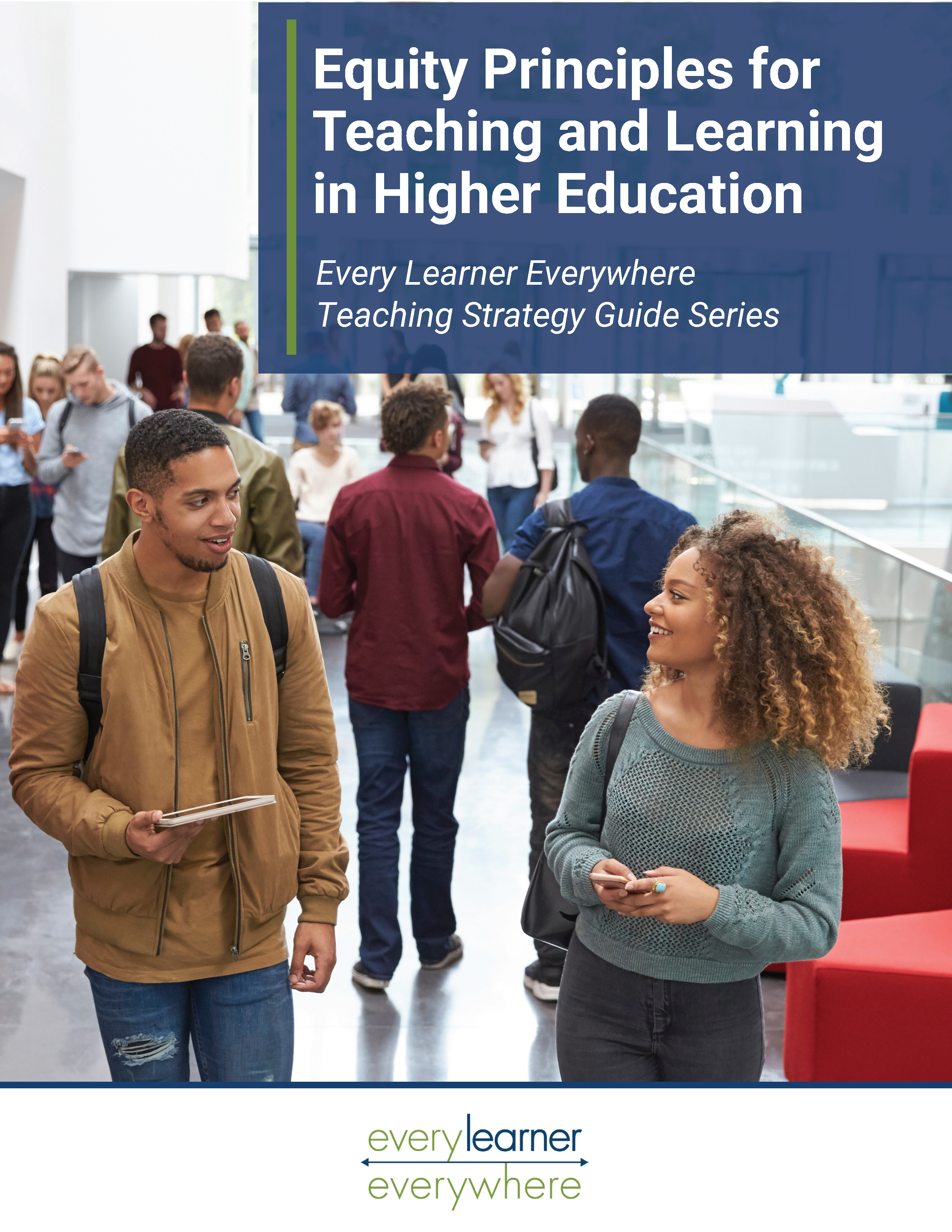
This Every Learner Everywhere strategy guide details our eight equity principles for teaching and learning in higher education.
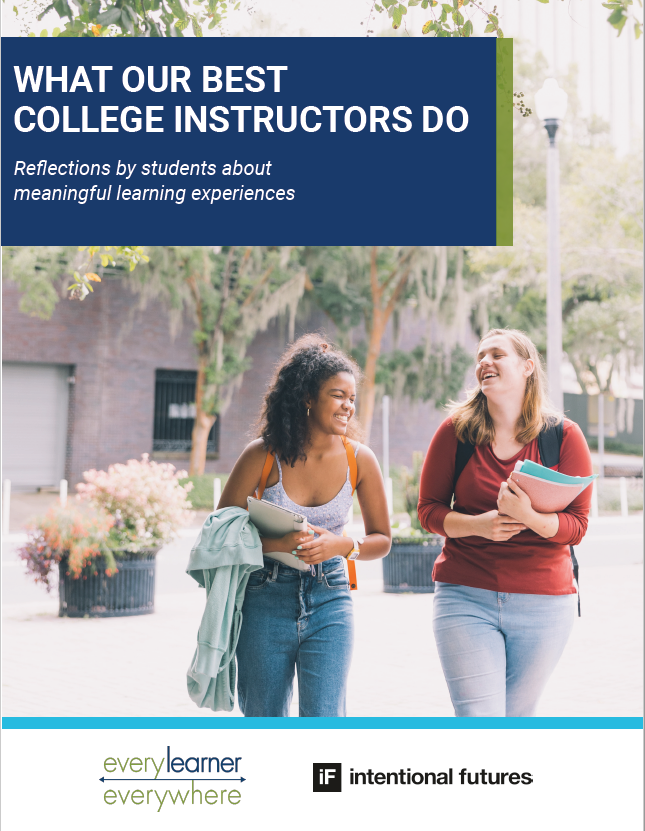
A resource about meaningful learning experiences written by college students for faculty.
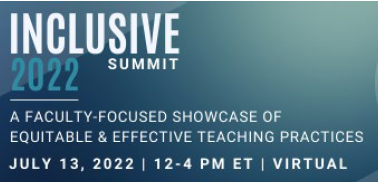
In this webinar, join your peers in deep discussions about the pedagogical challenges facing faculty who are teaching mathematics.
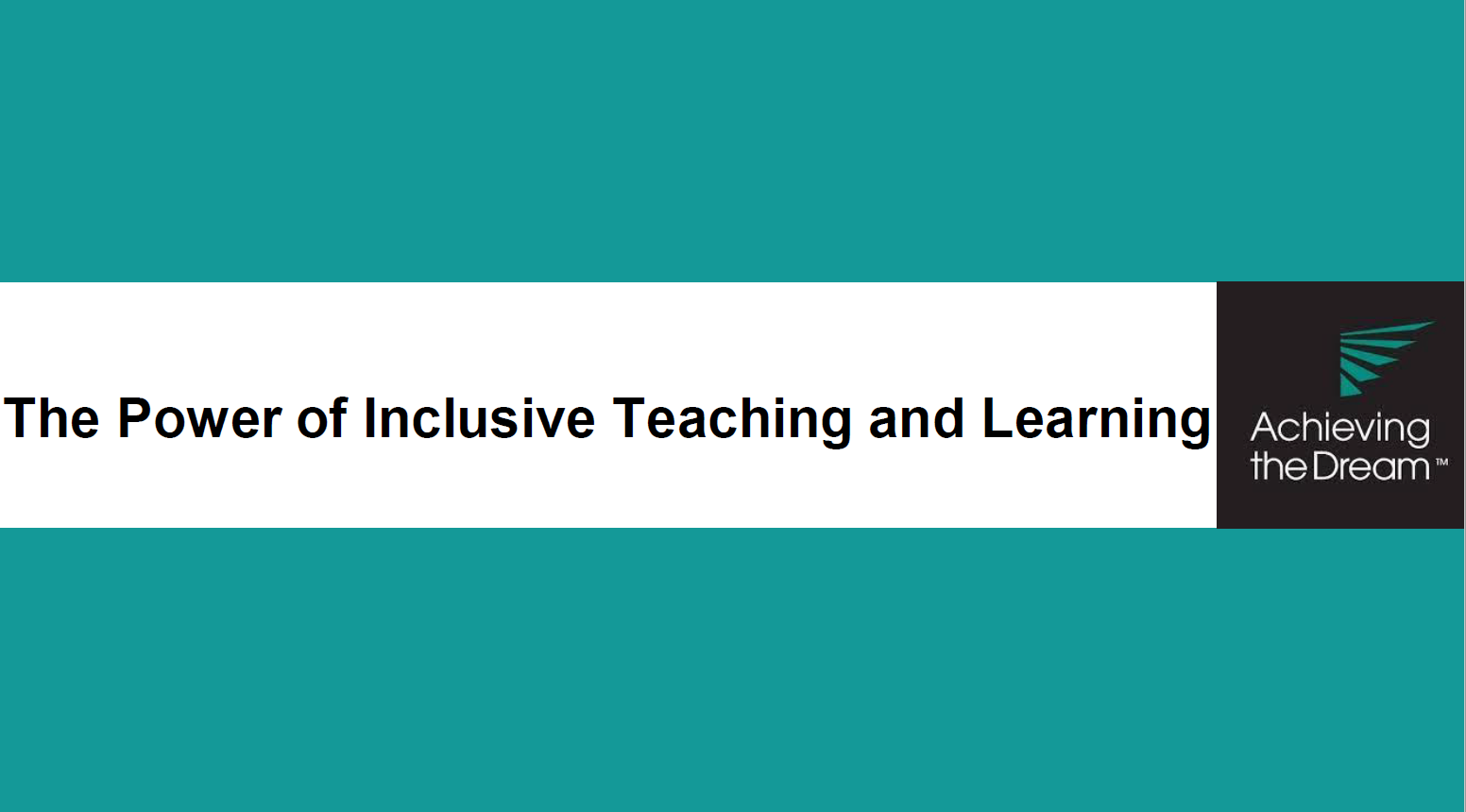
Teaching specialists from Achieving the Dream share strategies for Culturally responsive teaching, Anti-racist teaching, Abolitionist teaching, and Open Pedagogy.
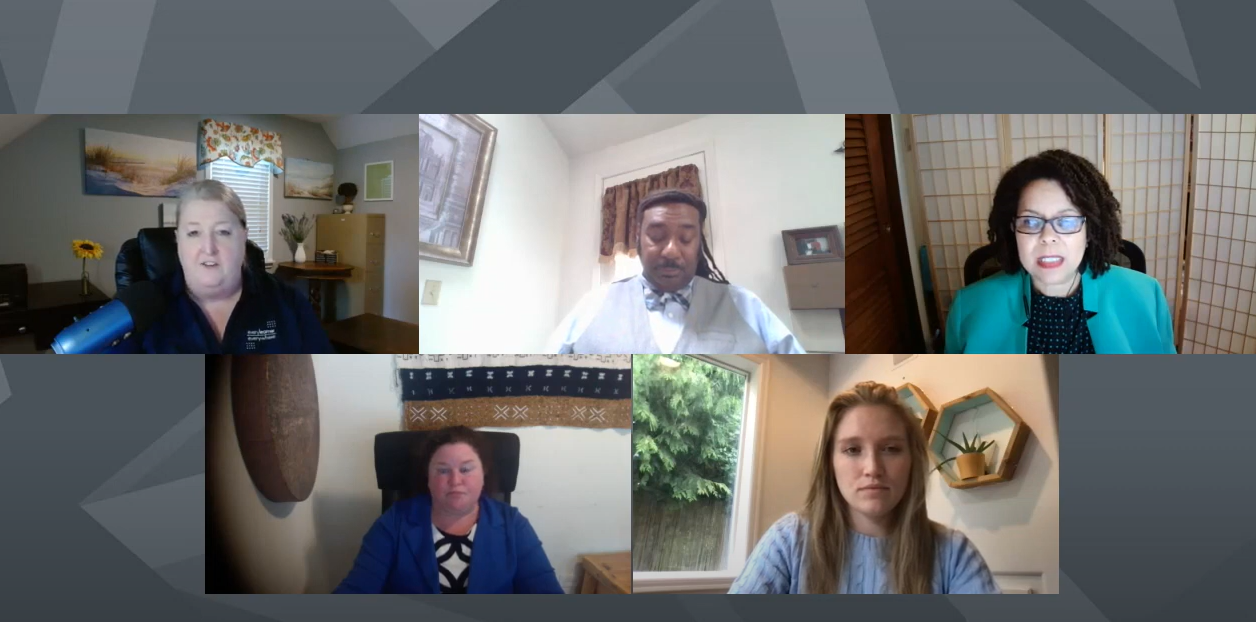
Specialists and practitioners of inclusive teaching answer your questions about strategies and approaches to creating an inclusive learning environment for all students.
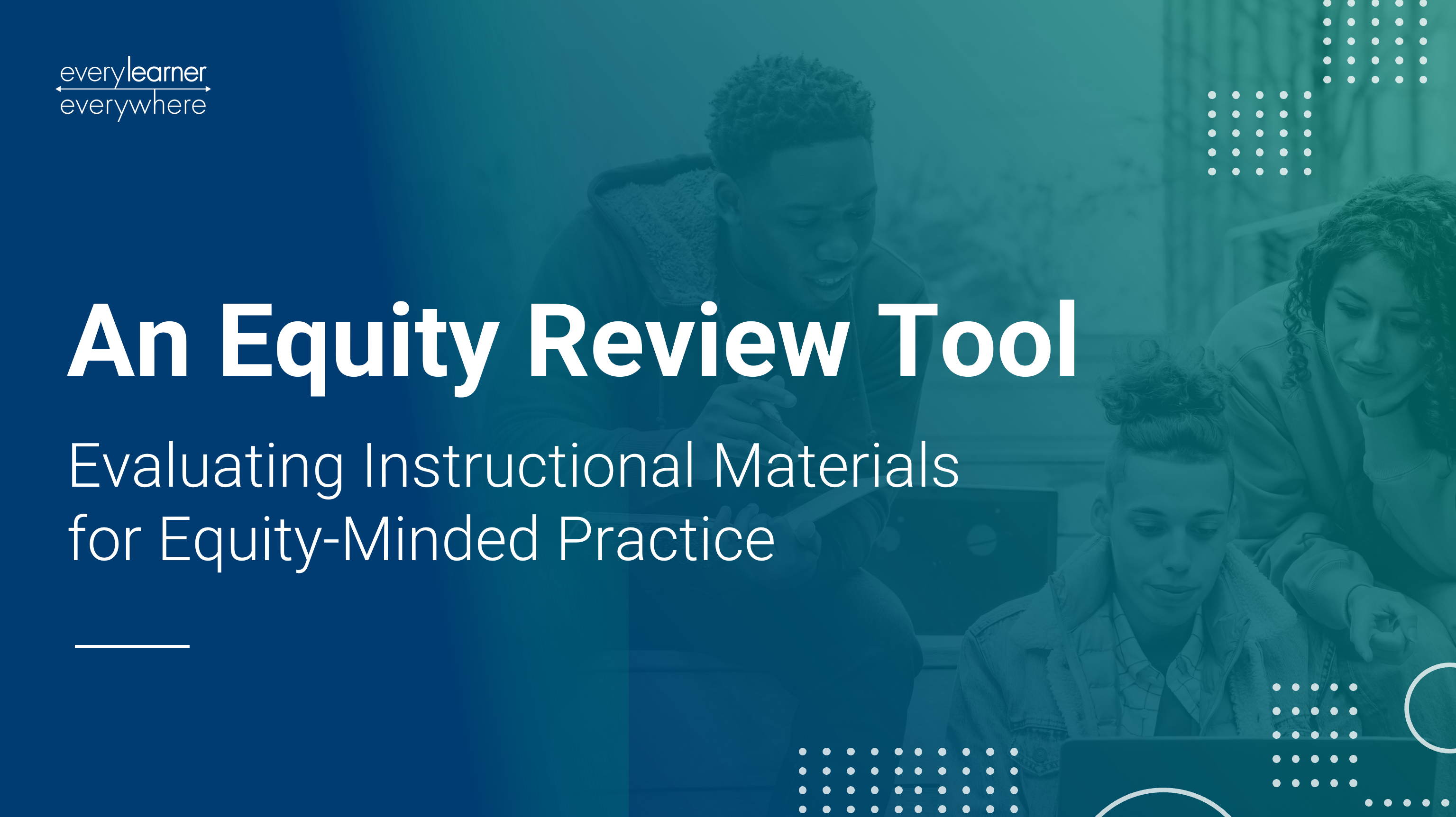
Developers of the Equity Evaluation Tool walk through the evaluation process to show how you can use it to make your course content equity-centered.
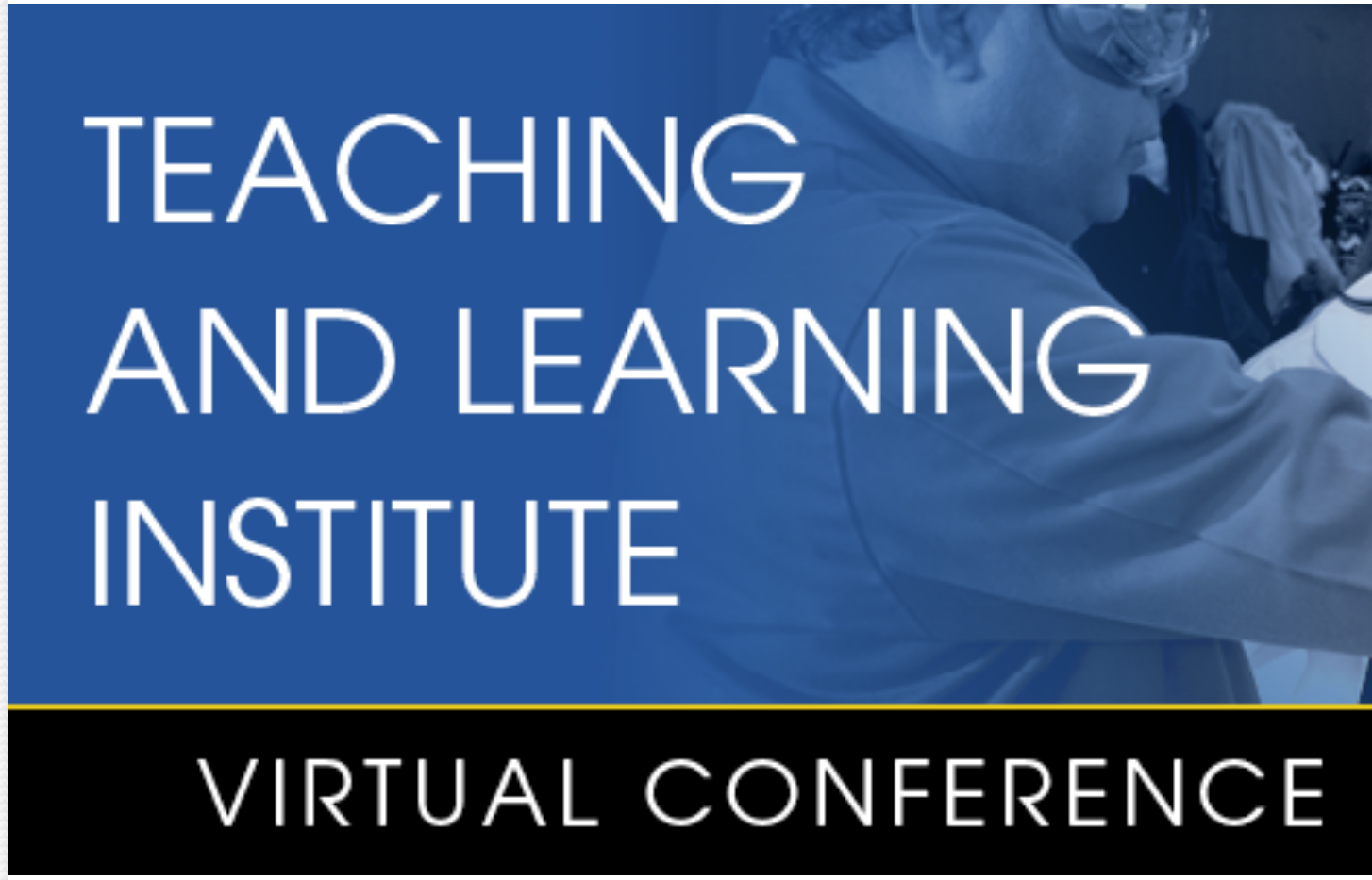
Faculty development leaders share their strategies for shifting the framework in ways that advance equitable student learning experiences.

Presenters share their experiences in developing course curriculum, assignments, and content that validate, affirm, and embrace the diverse perspectives, lived experiences and cultures of the student they serve.
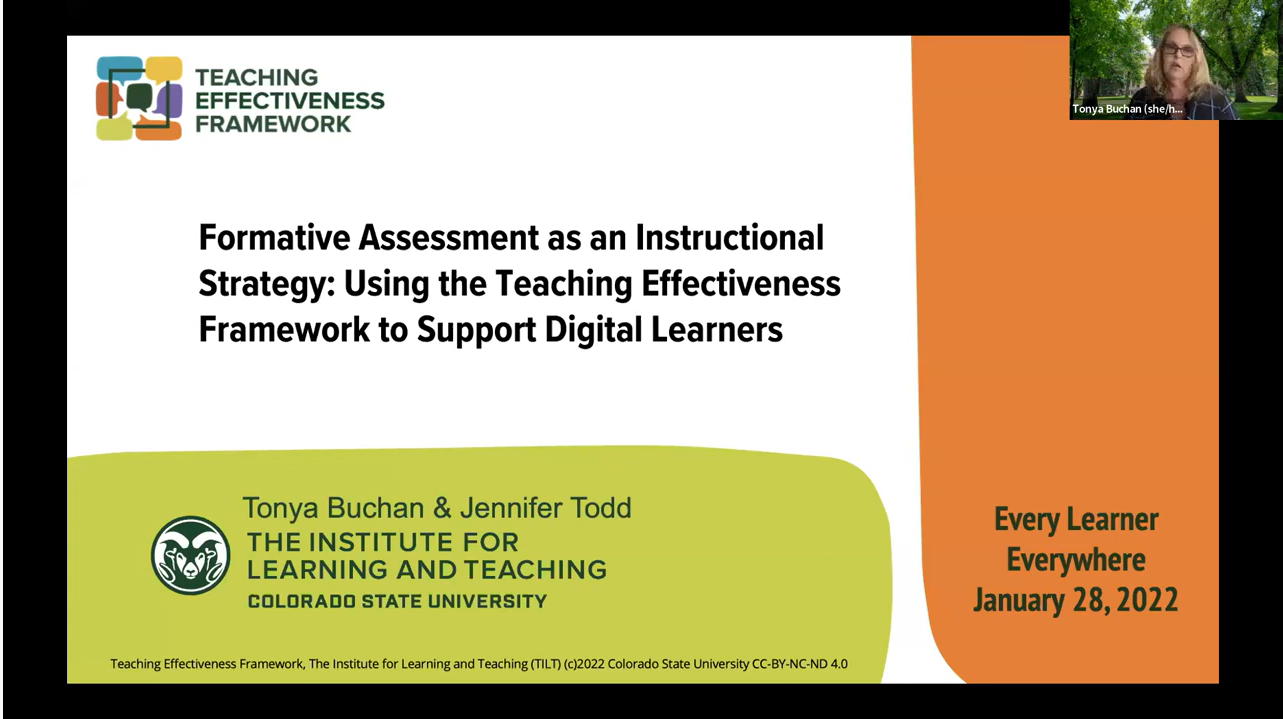
Presenters discuss the intersection of the Feedback & Assessment and Instructional Strategies domains of the CSU Teaching Effectiveness Framework.
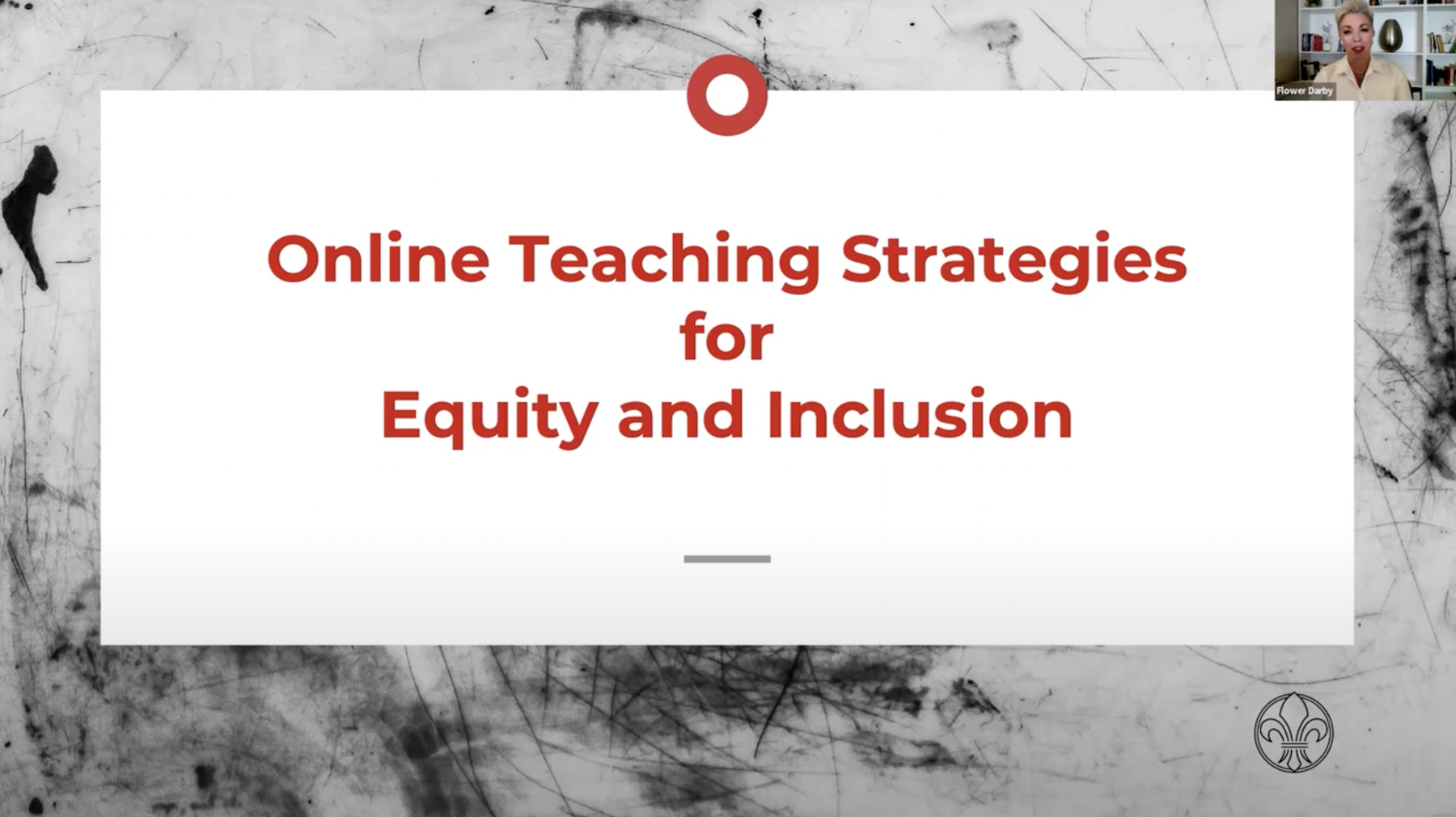
Evidence-based frameworks to welcome and support all students, regardless of their background, abilities, identities, needs, or preferences.
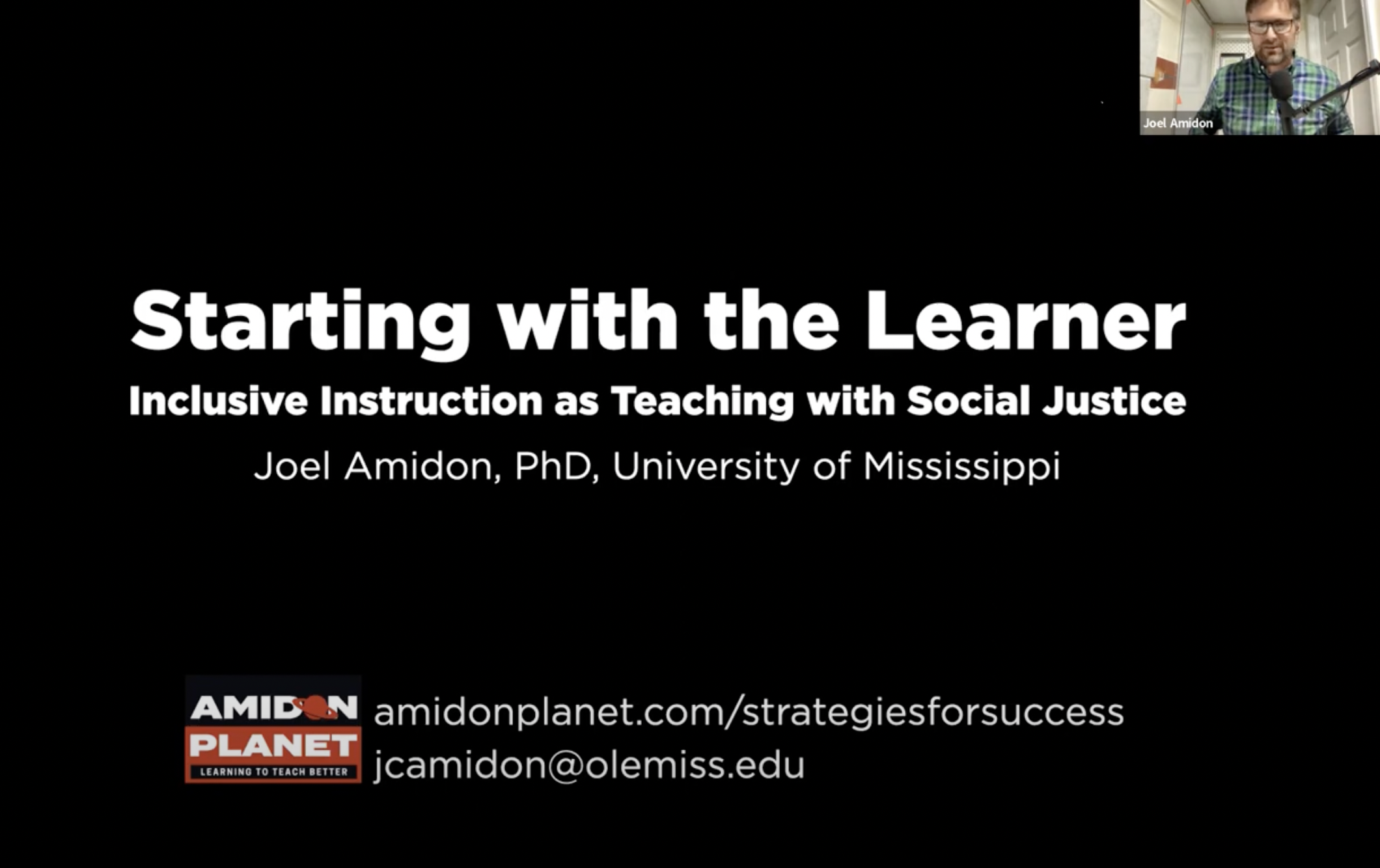
Participants consider how to make instructional design decisions that provide an inclusive learning environment.
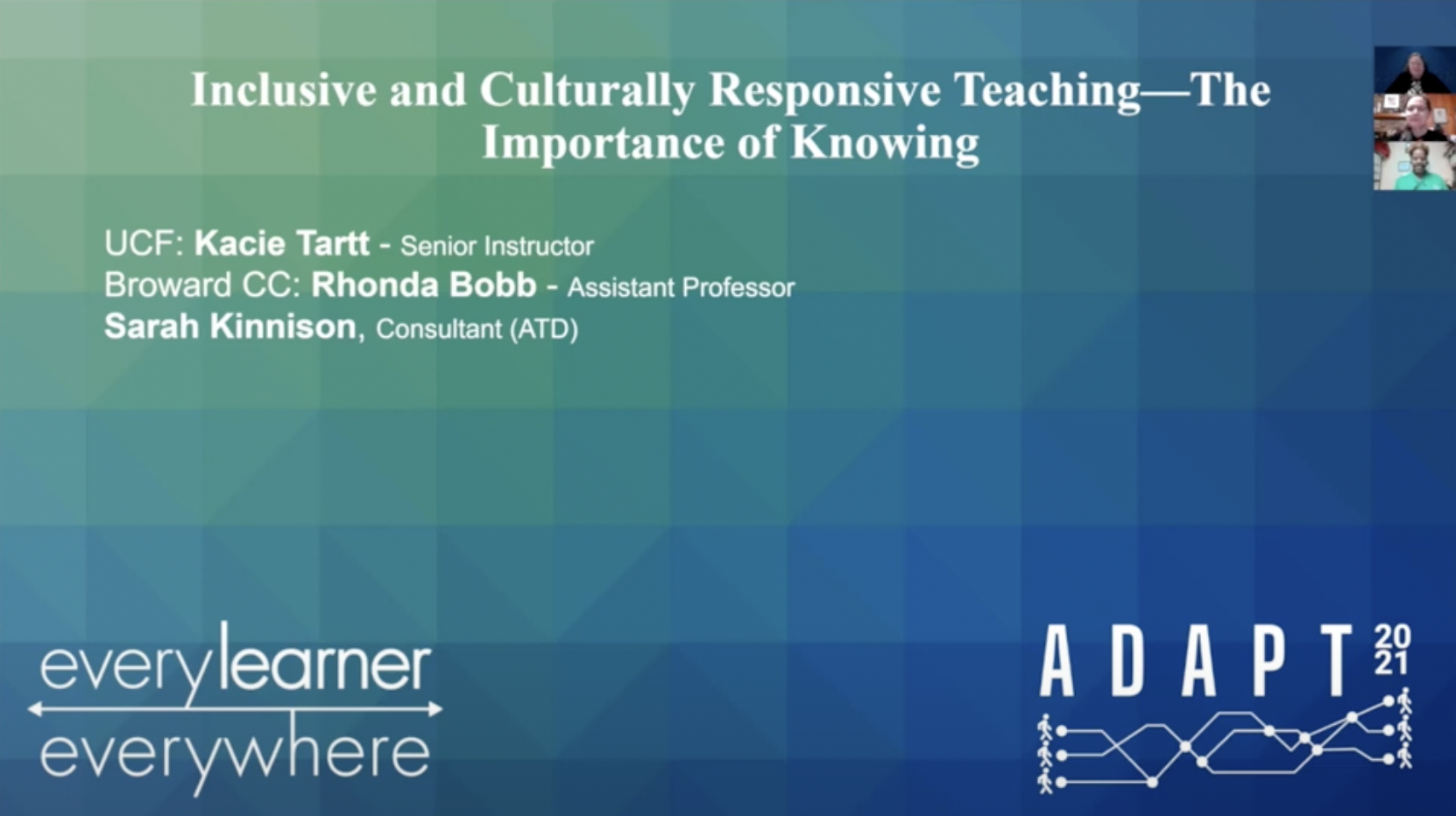
Faculty describe inclusive teaching strategies, alongside digital tools, to help connect the content to the student in meaningful and lasting ways.
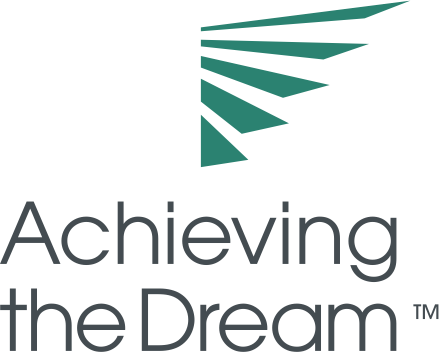
Instructional designers, technologists, and faculty developers practice consultation approaches by exploring a case study and applying course design strategies.

Align course instruction with adaptive content, analyze data points on an adaptive courseware dashboard and effectively onboard students.
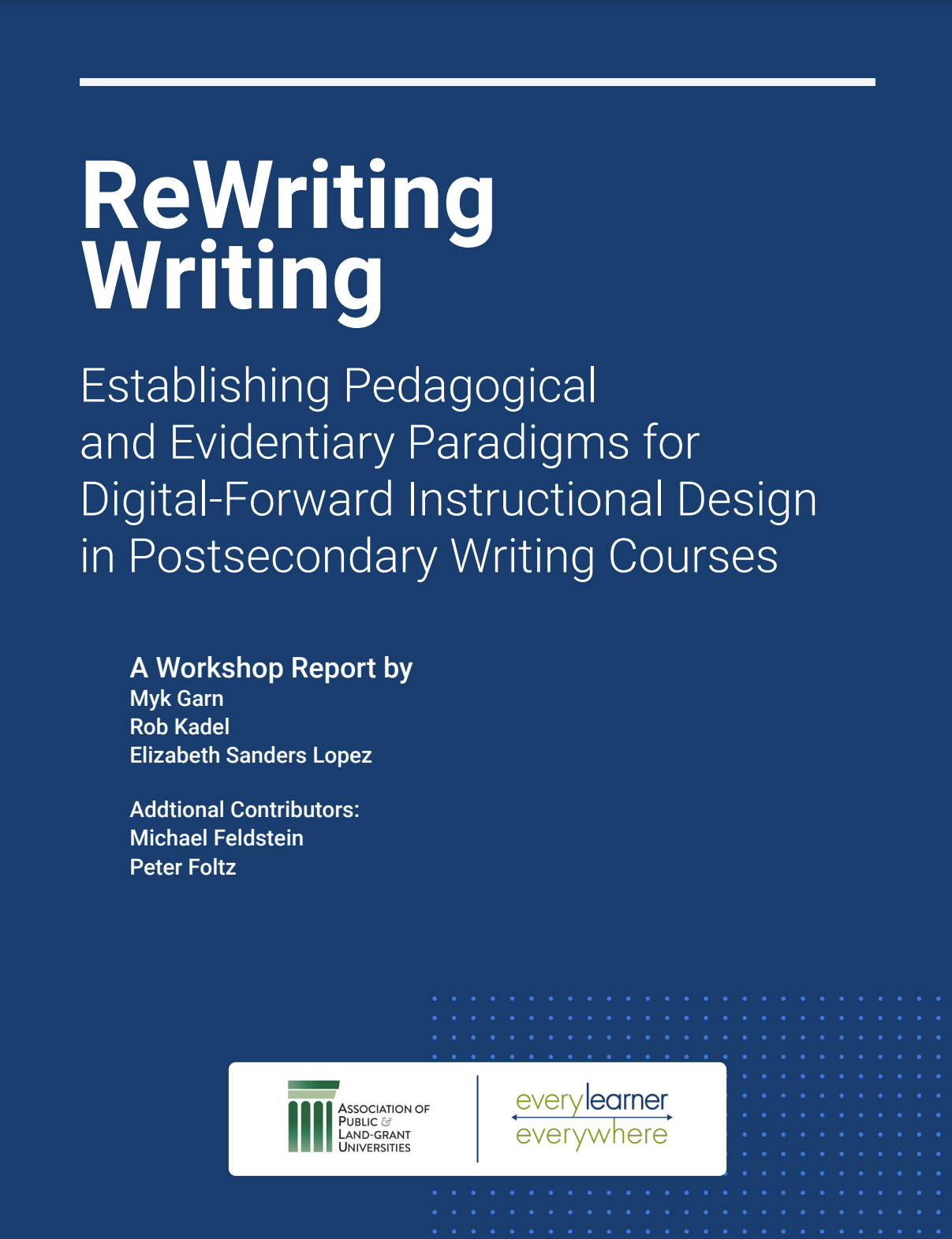
This report summarizes the work of the Re-Writing Writing workshop where we invited a diverse range of digital learning experts to bring their distributed knowledge of digital tools to a four-session virtual workshop.
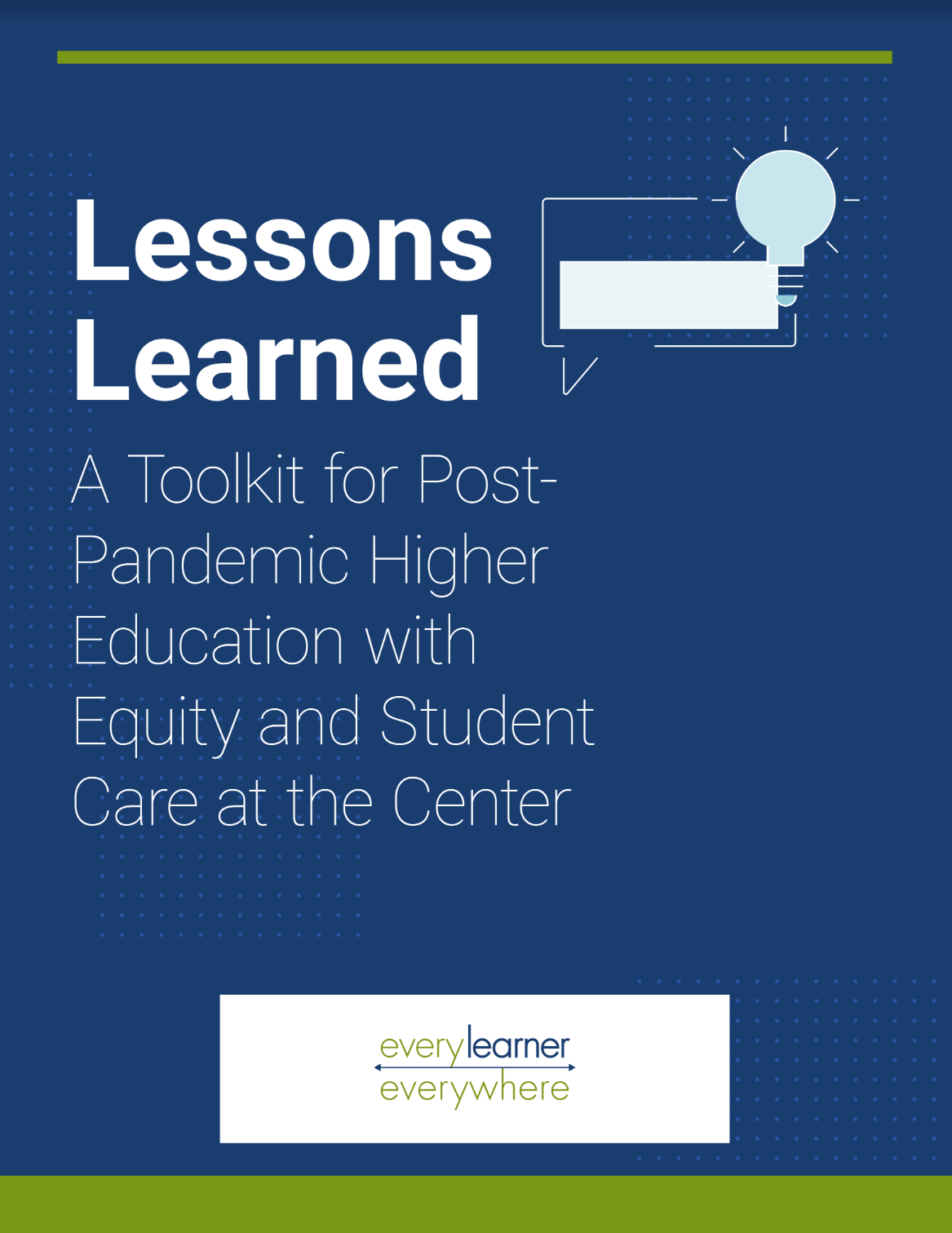
Lessons Learned is made up of over 30 recommendations for improving practices in higher education. It asks where unexpected benefits showed themselves among the forced necessity of emergency remote teaching, and it encourages faculty, administrators, and academic and student support colleagues to continue collaborating to remove barriers, improve access, and update methods and tools.
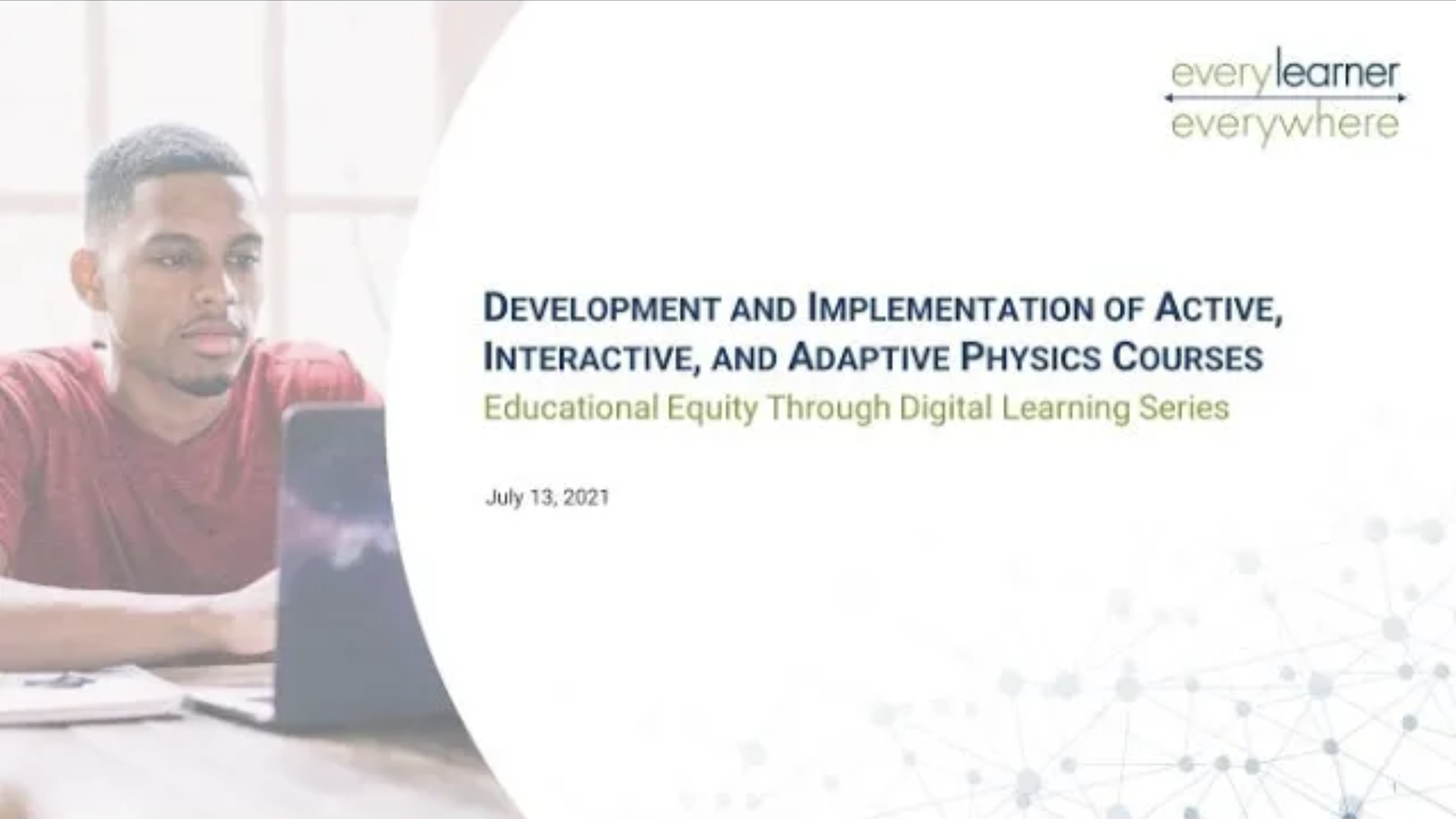
Faculty share experiences of developing and implementing active, interactive, and adaptive introductory physics courses. The design allows students to work at their own pace, choosing support items presented to them via the adaptive feature of the course, and explore concepts through simulations with activities.
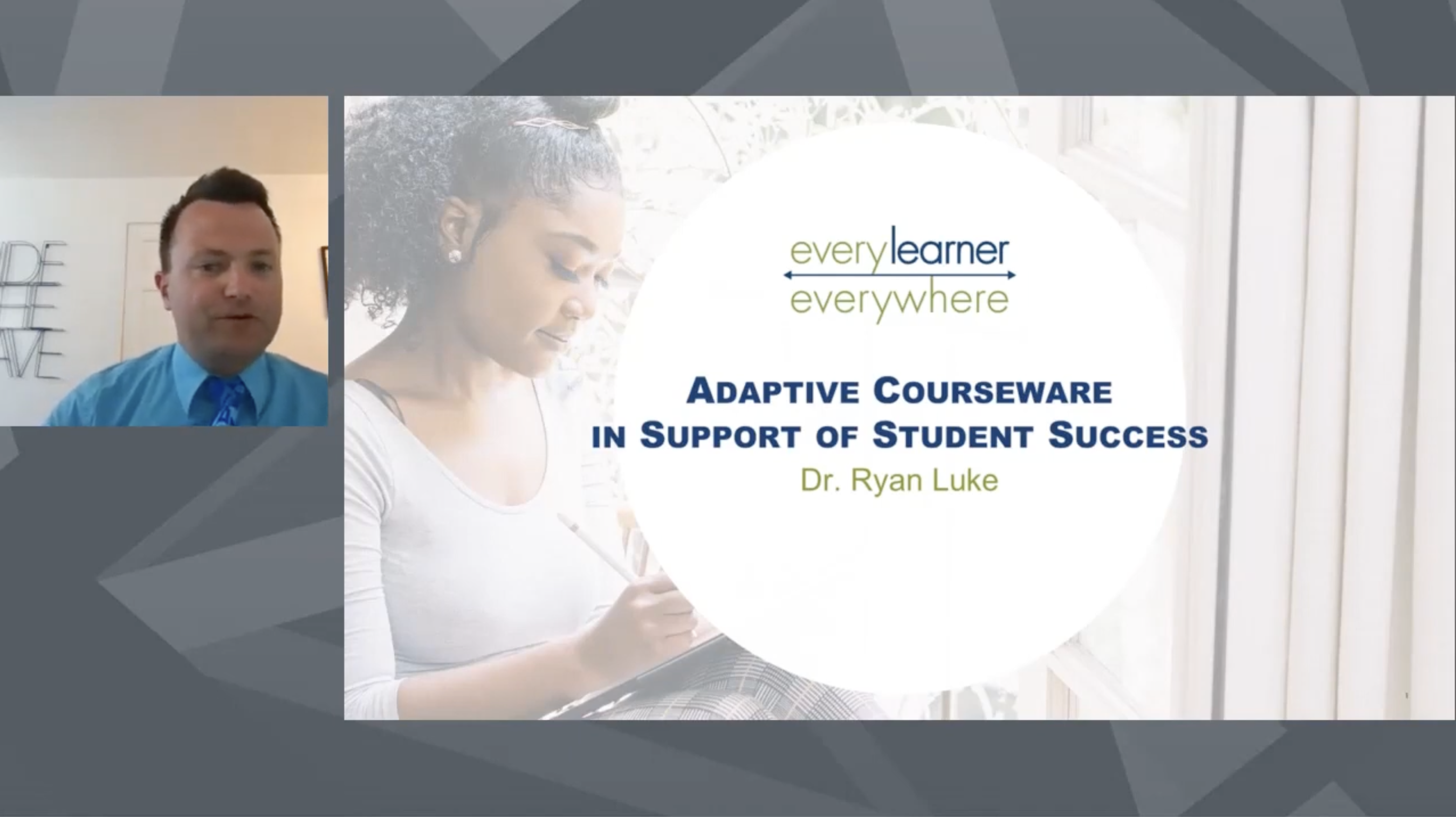
How personalized digital learning technology can support evidence-based teaching.
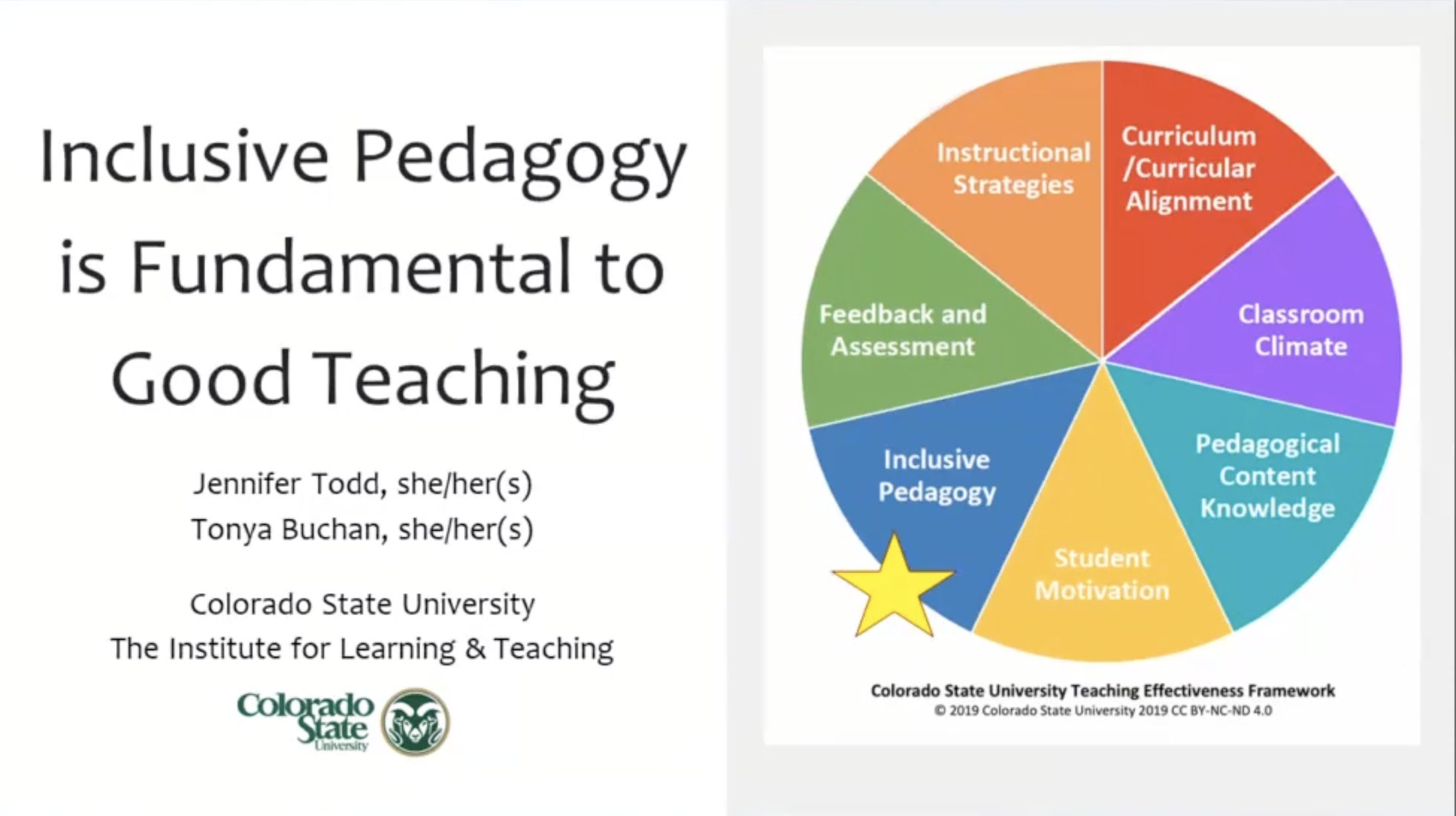
An overview of inclusive pedagogy with Colorado State University’s Teaching Effectiveness Framework and its implications during the shift to remote learning in 2020.
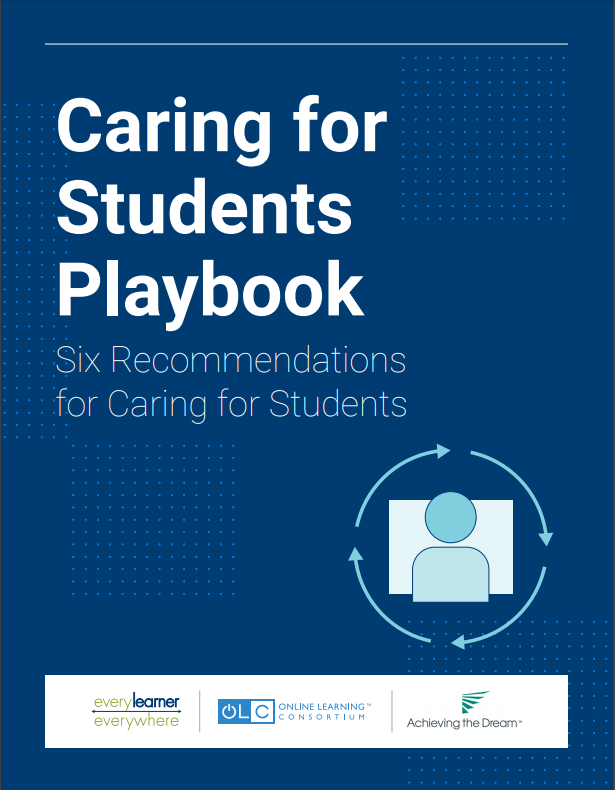
This playbook offers authentic and easily implementable strategies to help instructors to care for their students and ensure their success in the classroom and beyond.
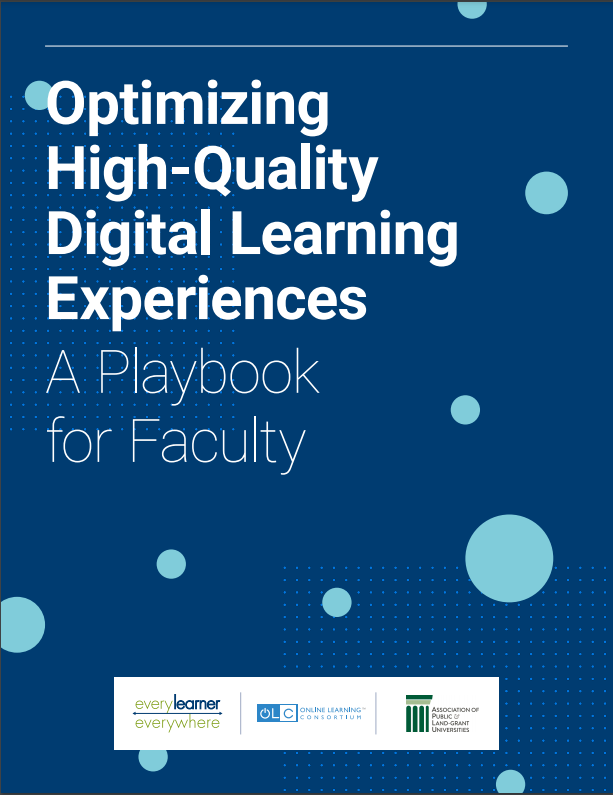
By integrating teaching and design principles, this guide assists faculty in positively impacting student learning, especially for students who are minoritized because of race, gender, disability, or socioeconomic status.
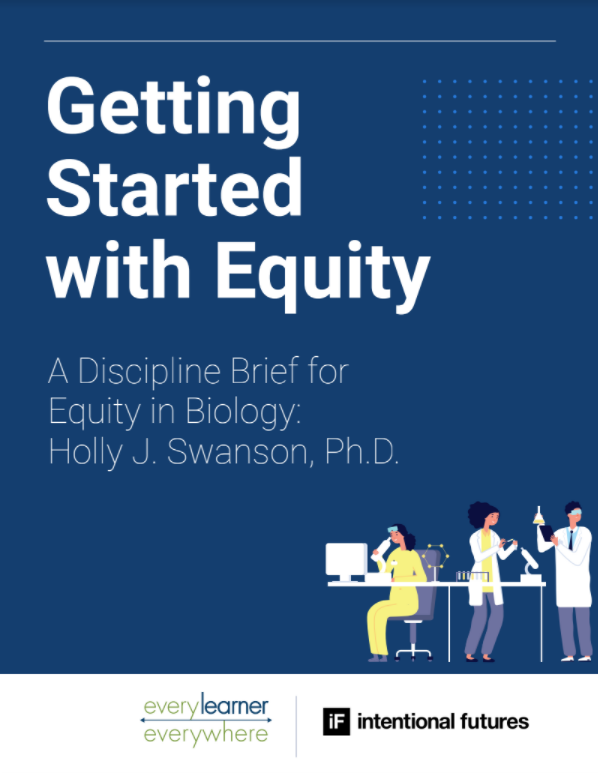
This brief explores how pedagogical, content, and mindset changes can reduce obstacles for minoritized students and support equity in biology.
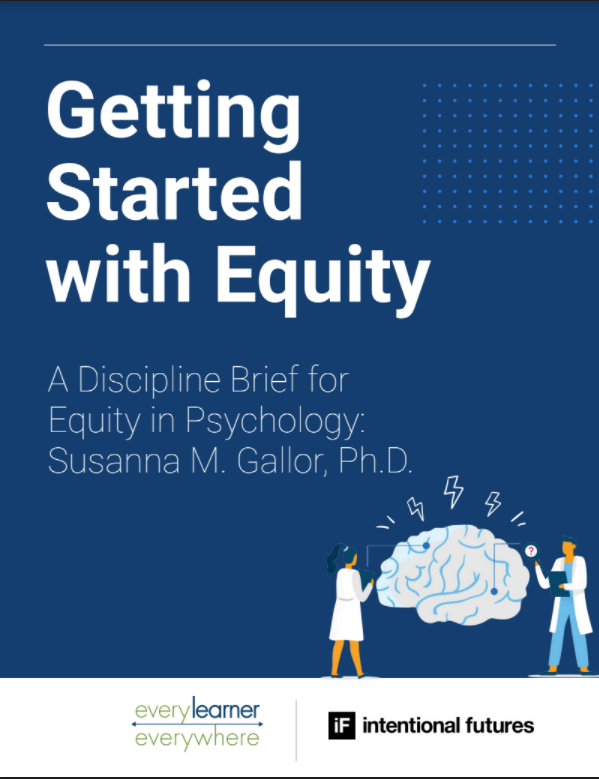
This brief provides an overview of equity issues and solutions in psychology courses.

This brief shares how asset-based instruction, fostering student belonging, active learning, and flexible and differentiated coursework can reduce equity gaps in chemistry.
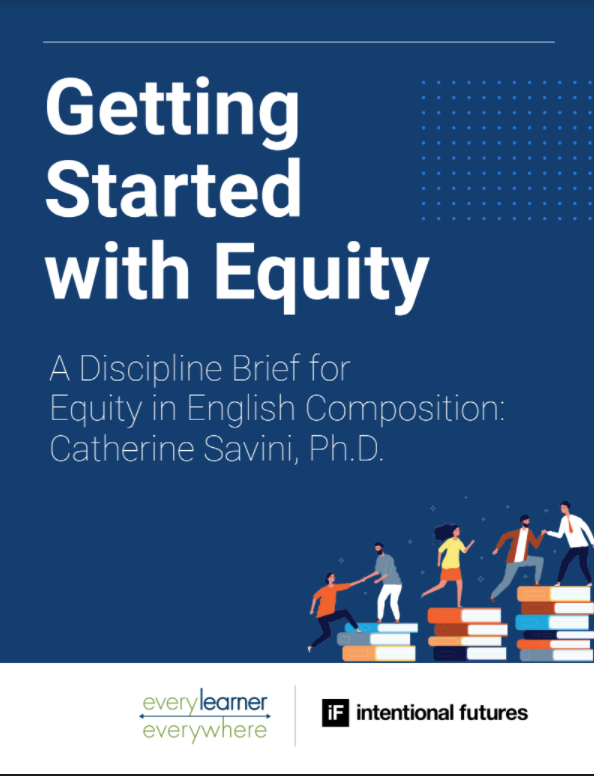
This brief explores how adjusting pedagogy, and eliminating linguistic bias can support equity in English composition courses.

This brief recommends resources to inform teaching to account for linguistic diversity and ability and promote a more equitable academic environment for students in English composition courses.
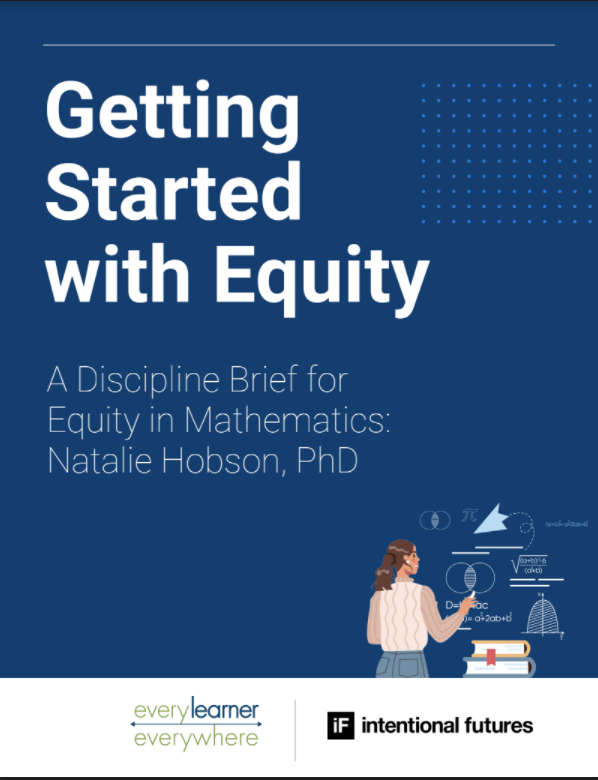
This brief suggests diverse pathways, student-centeredness, and bias training to close equity gaps in mathematics courses.
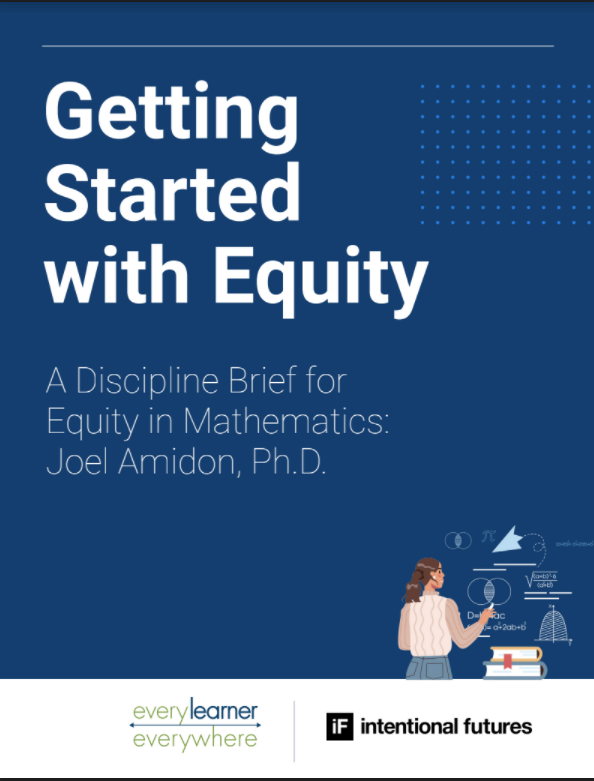
Joel Amidon is on a mission is to lead people to love others through teaching, providing solutions for equity in math courses.
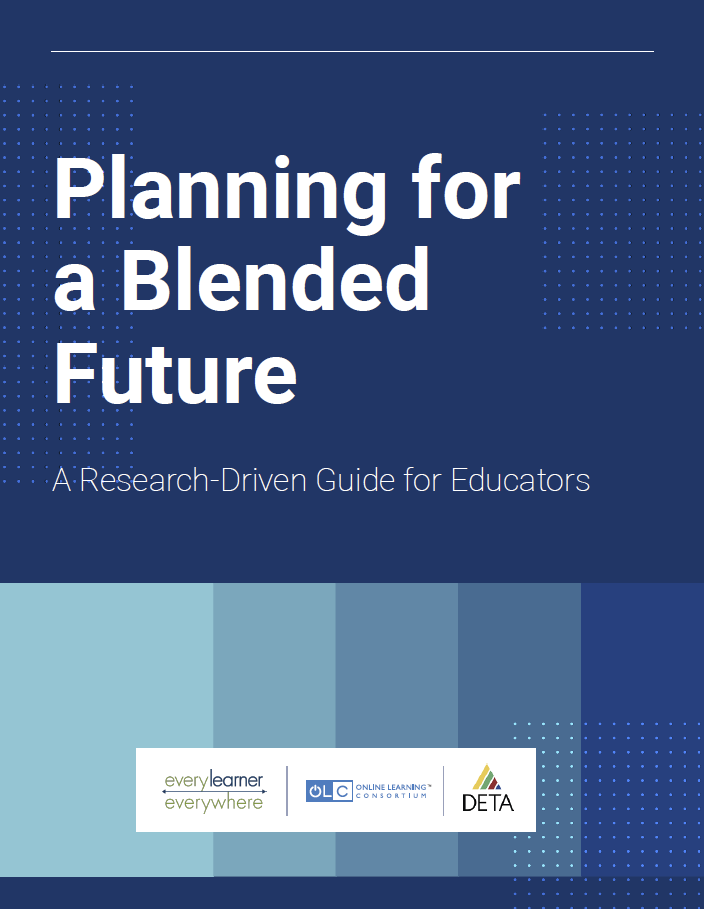
This guide moves beyond getting started with blended learning to help educators realize the best of online and onsite instruction and implement research-driven techniques to positively influence student outcomes.
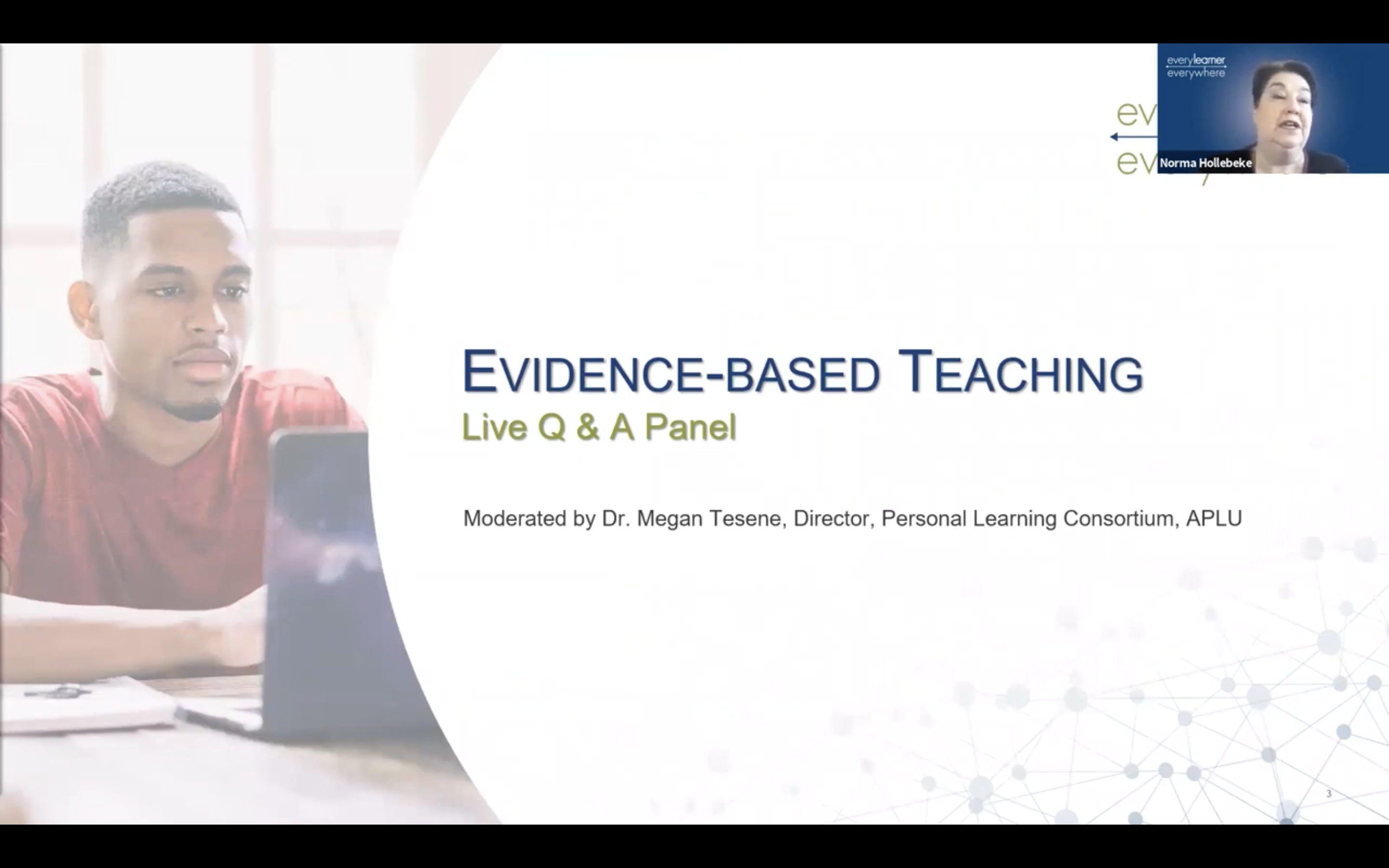
A panel discussion about Evidence-based teaching strategies that center equity in online and hybrid modalities.
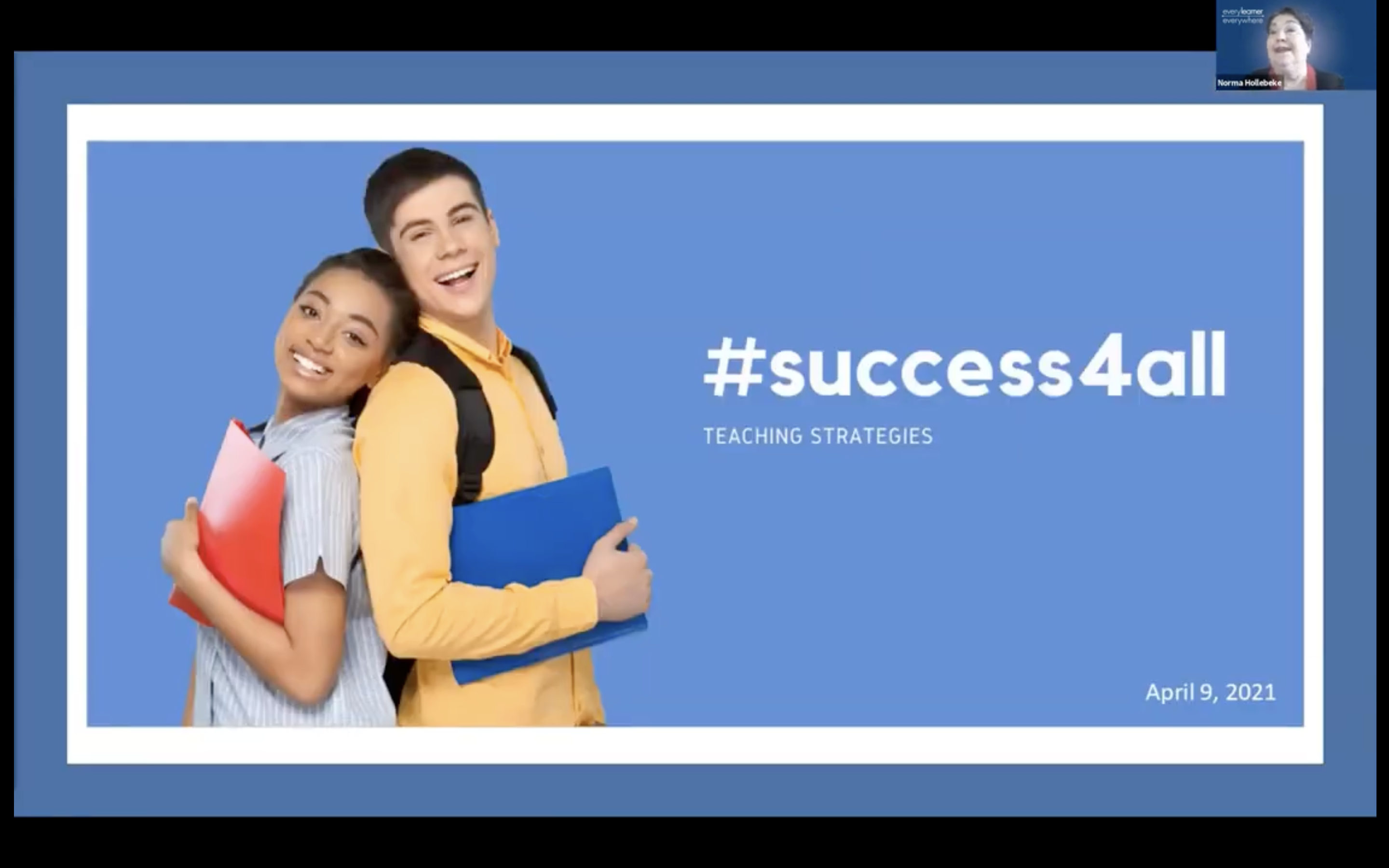
In this webinar, learn simple teaching strategies to help students take charge of their learning and ensure all students master content.
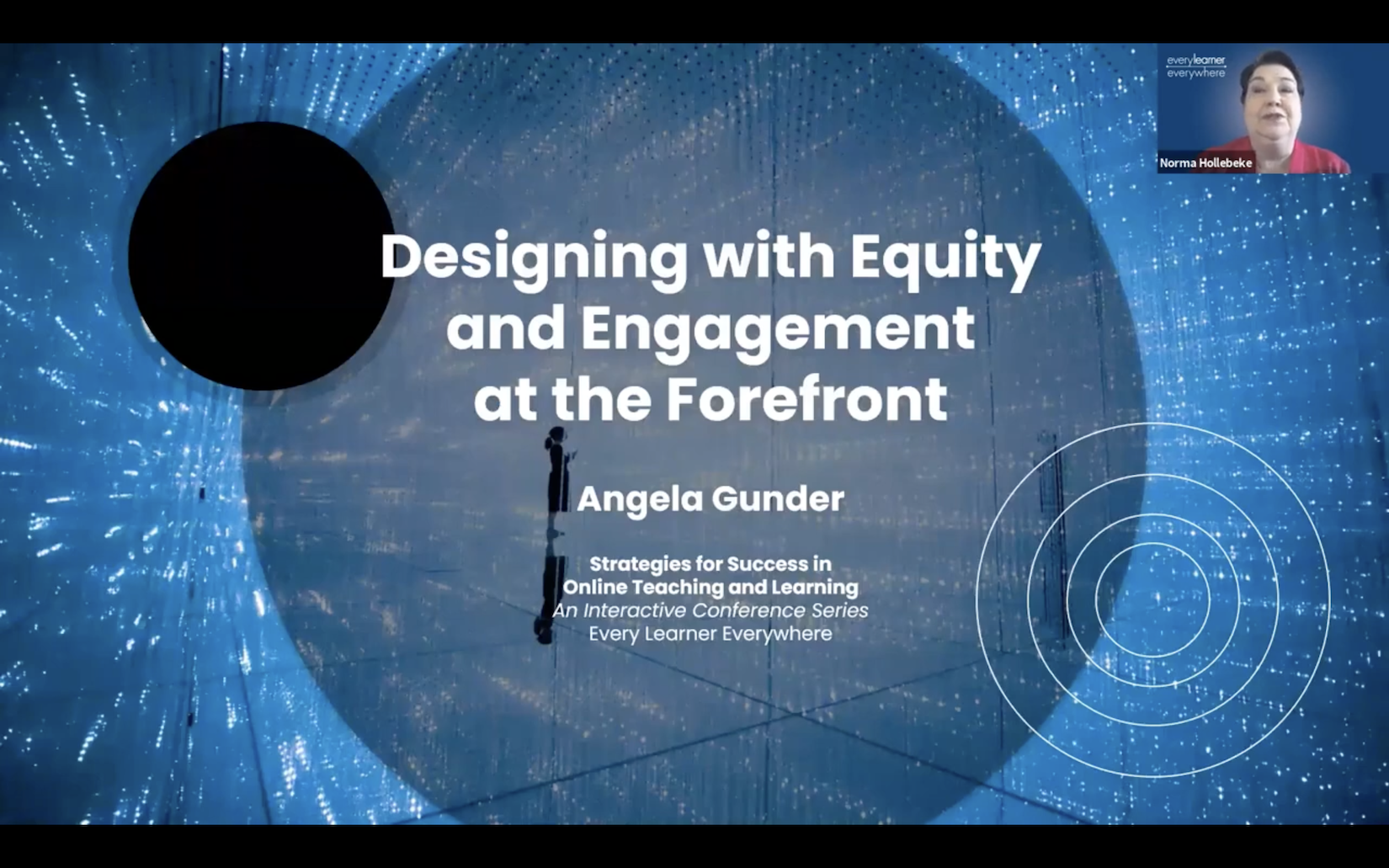
Expert insight and tips on designing online courses with equity and engagement at the forefront.
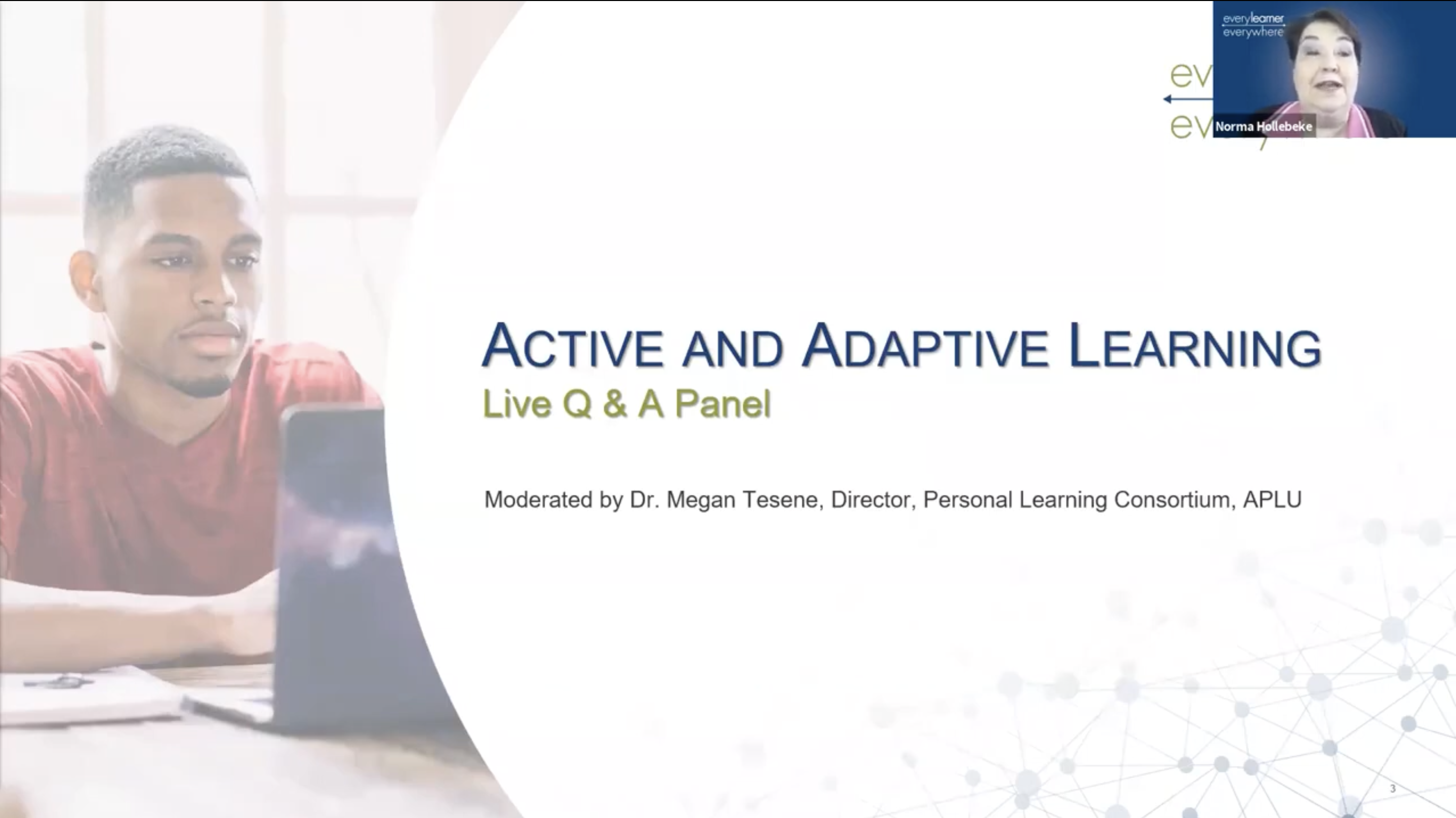
Active and adaptive learning strategies can engage students in blended and online environments, resulting in improved student outcomes and success.
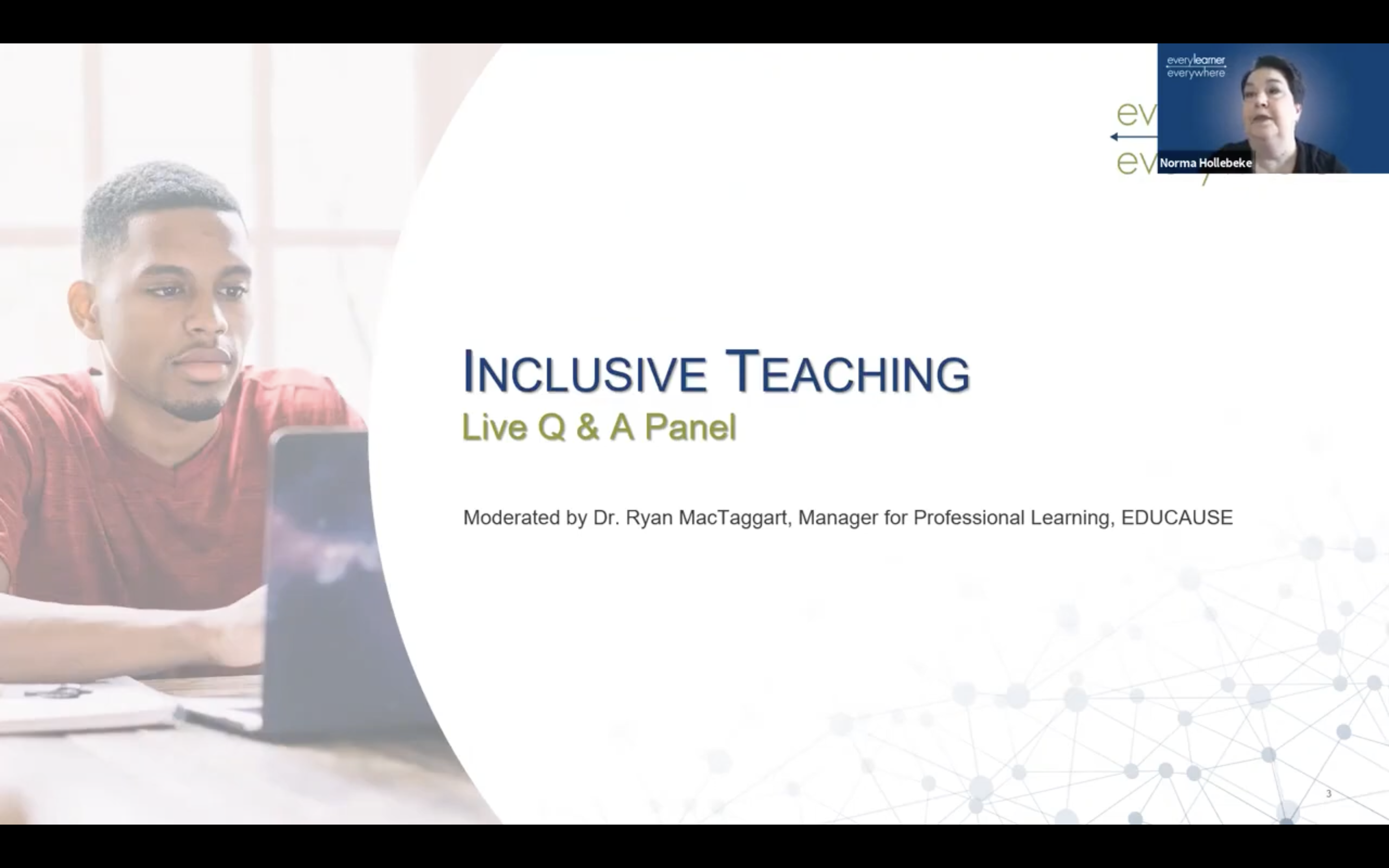
In this live Q&A panel, participants engage with Every Learner Everywhere Expert Network professionals to discuss equitable and inclusive teaching practices and digital learning to foster student-centered learning.

This session facilitates participant discussion on how to connect local environmental and climate justice issues to STEM concepts.
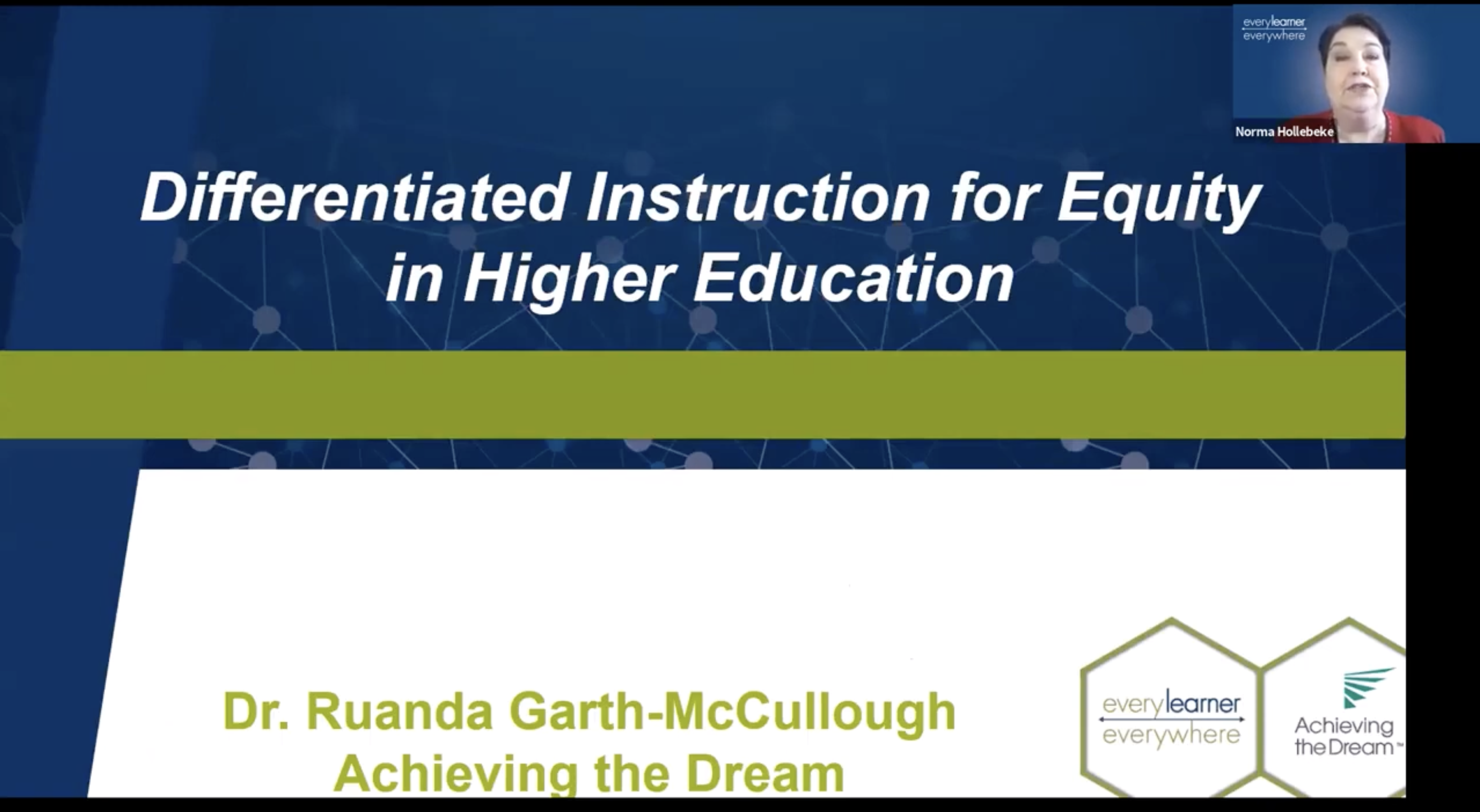
An overview of strategies and tools that engage students’ prior knowledge and supports their performance by differentiating the content, process and assessments.
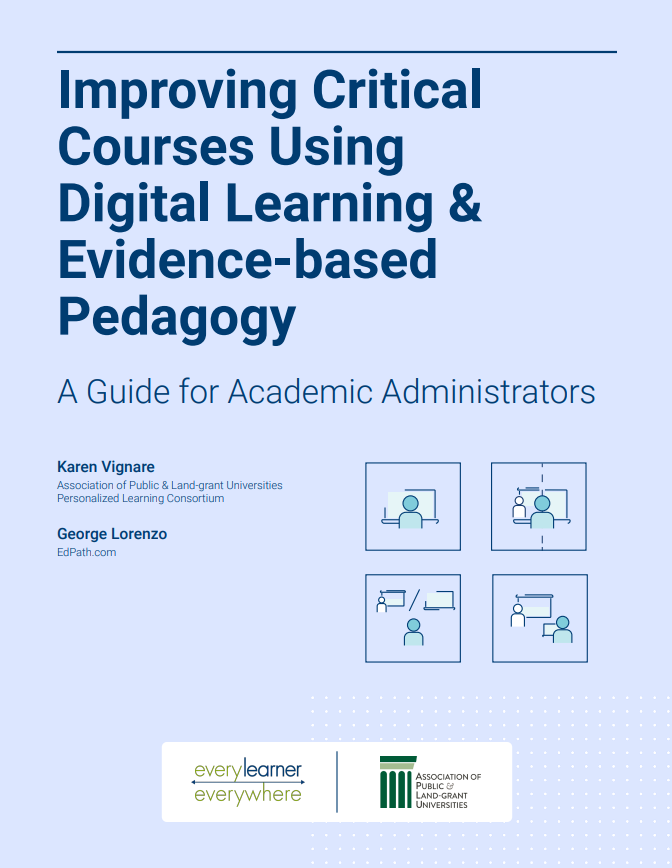
This guide features numerous links to resources academic administrators can draw from to effectively support a continuously improved teaching and learning environment that is sustainable for years to come.
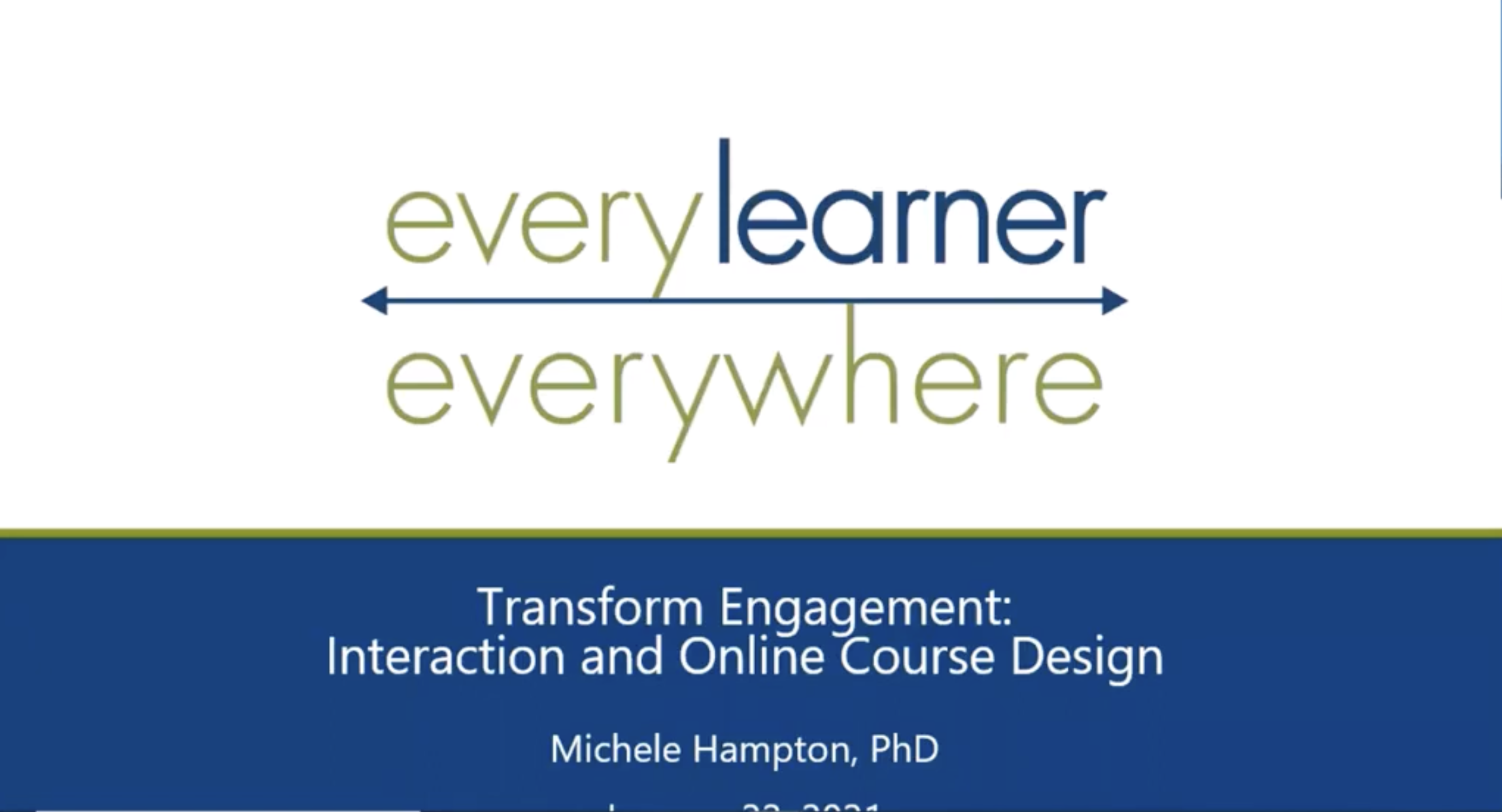
Rich media tools and thoughtful student-student, student-teacher, and student-content interactions can be powerful tools in online course design that inform “how we teach” and underpin successful use of technology in the online learning environment.
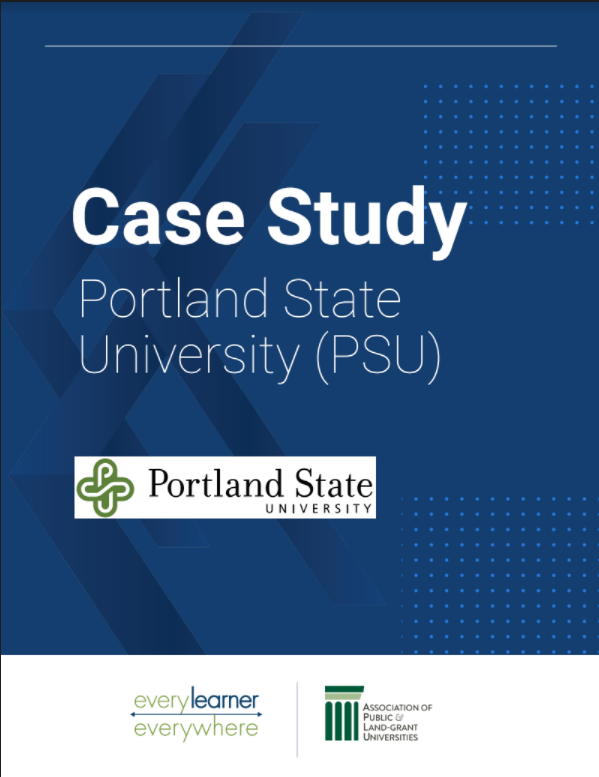
Combining active learning with adaptive courseware leads to a statistically significant reduction of DFW grades in foundational courses.
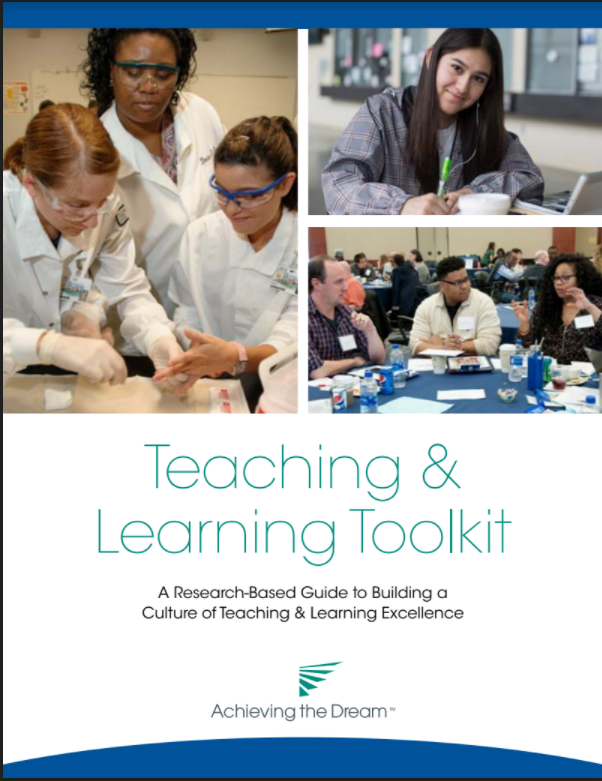
Grounded in research, this resource supports college teams in building institutional capacity in teaching and learning.
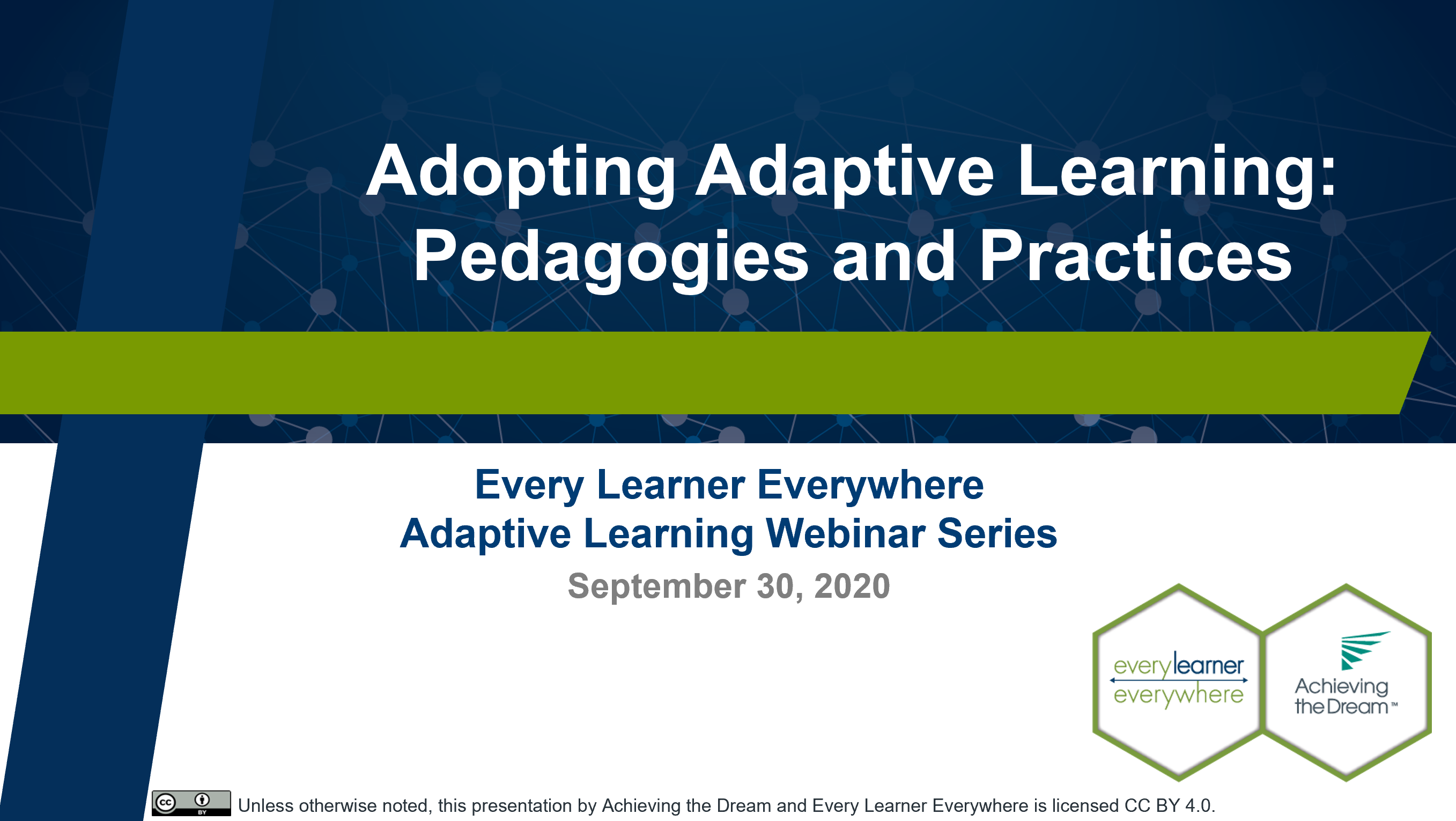
Faculty discuss how they’ve brought adaptive learning into their courses, and how it has altered teaching and learning for them and their students.
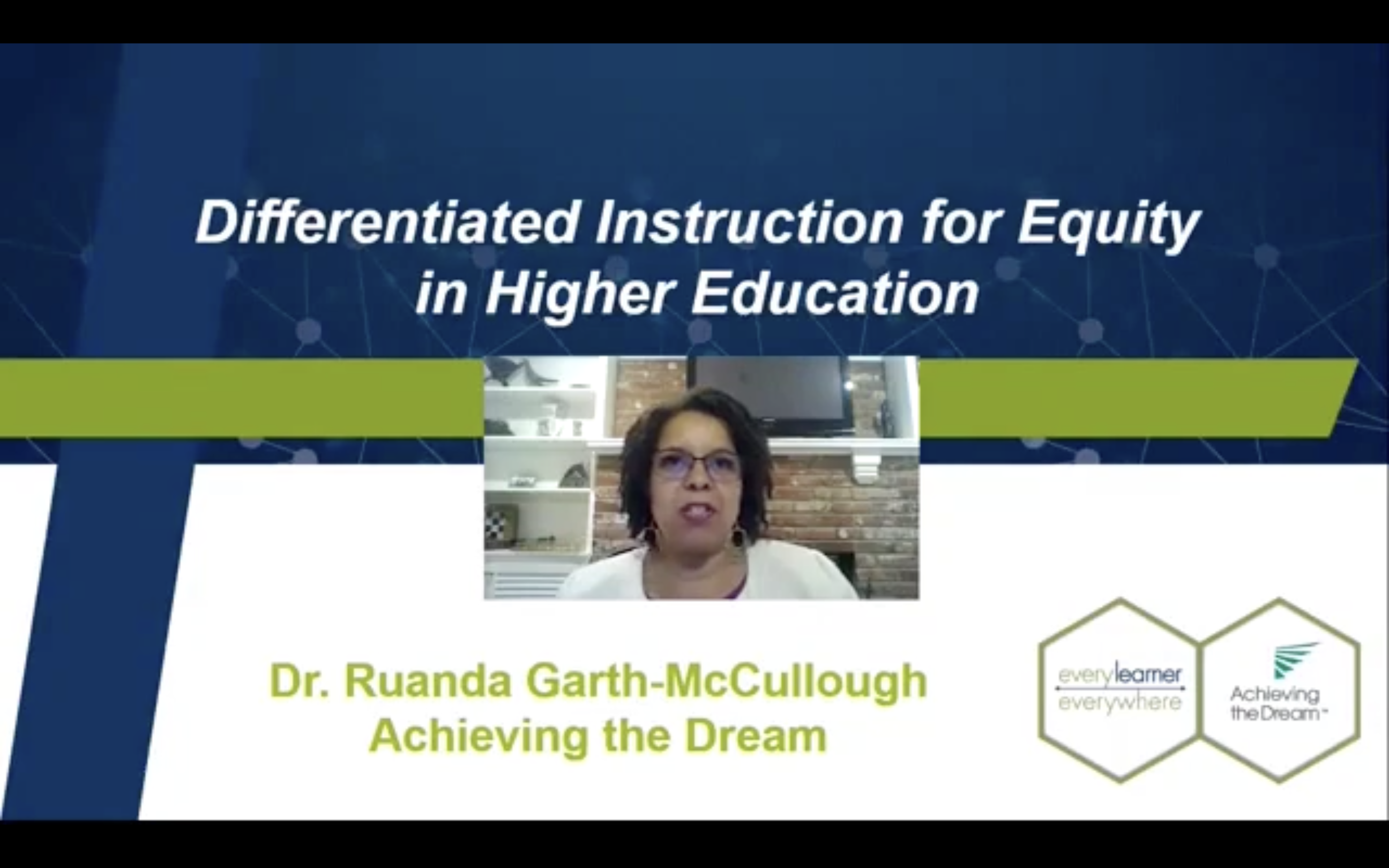
Dr. Ruanda Garth-McCullough of Achieving the Dream defines differentiated instruction and provides strategies and technologies for adaptive learning implementation.
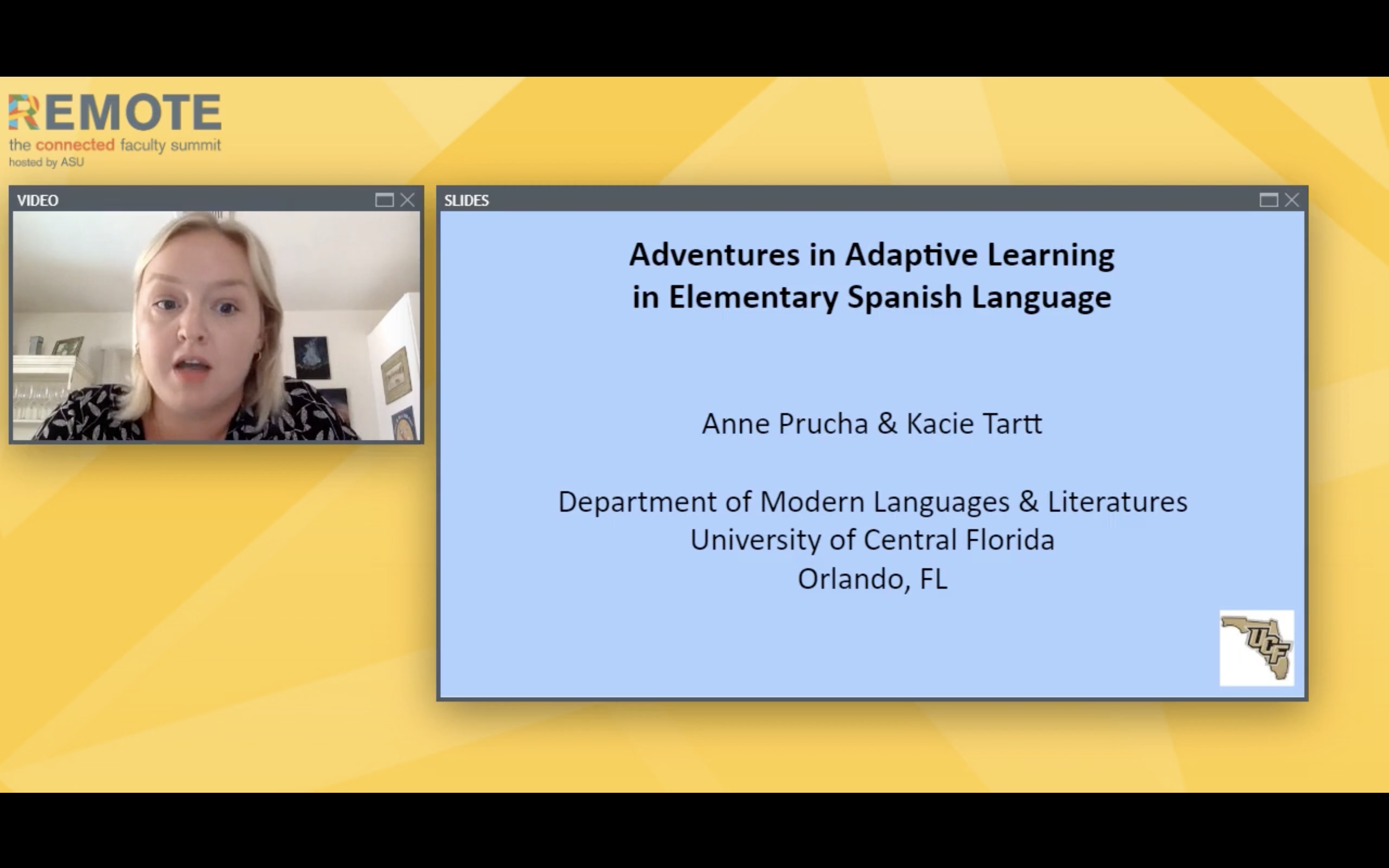
Instructors at UCF share their course redesign experience after adopting adaptive learning in a Spanish language course.
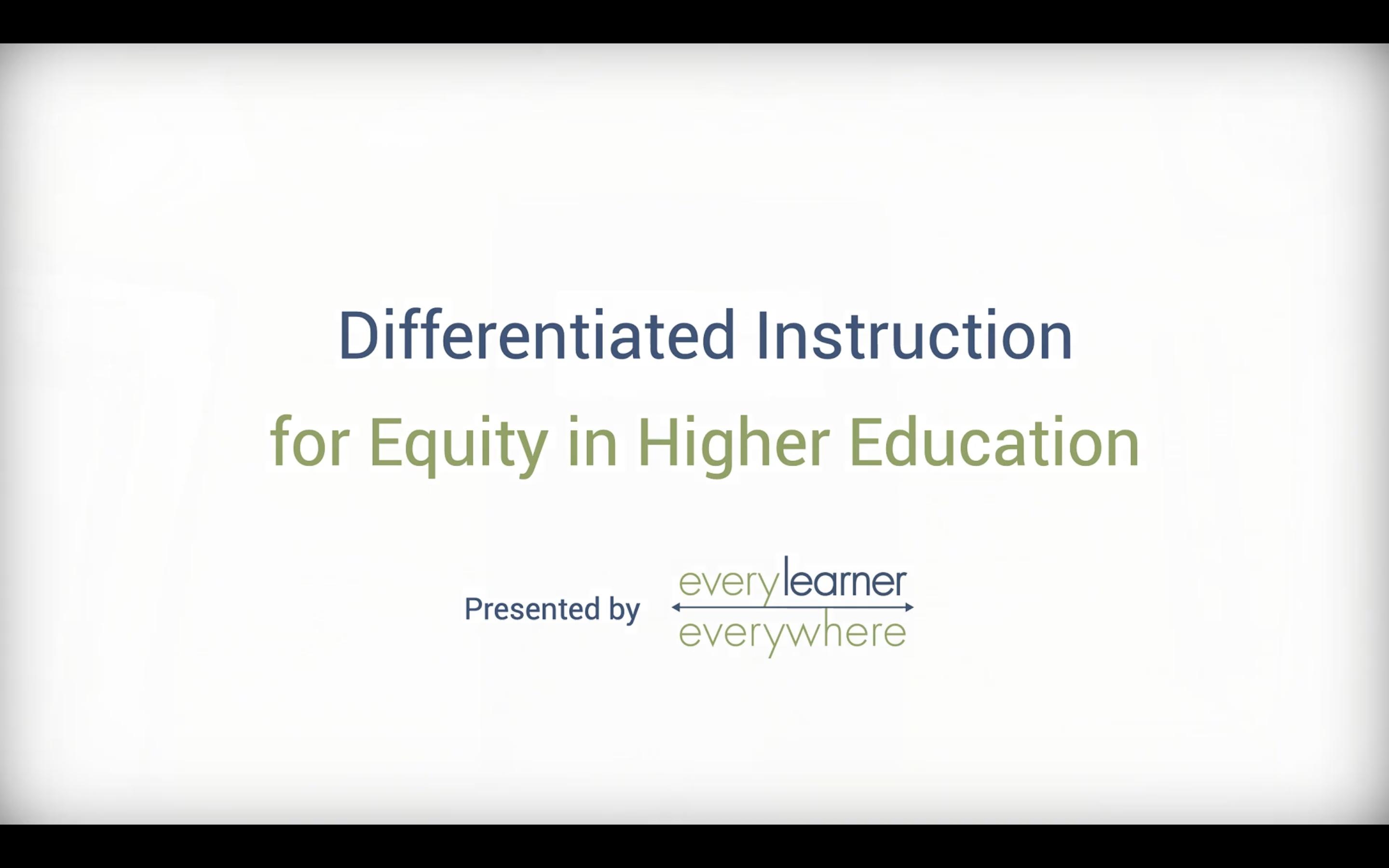
This video provides an introduction to differentiated instruction as a means to enhance the quality learning environments and to engage students in relevant and meaningful education.
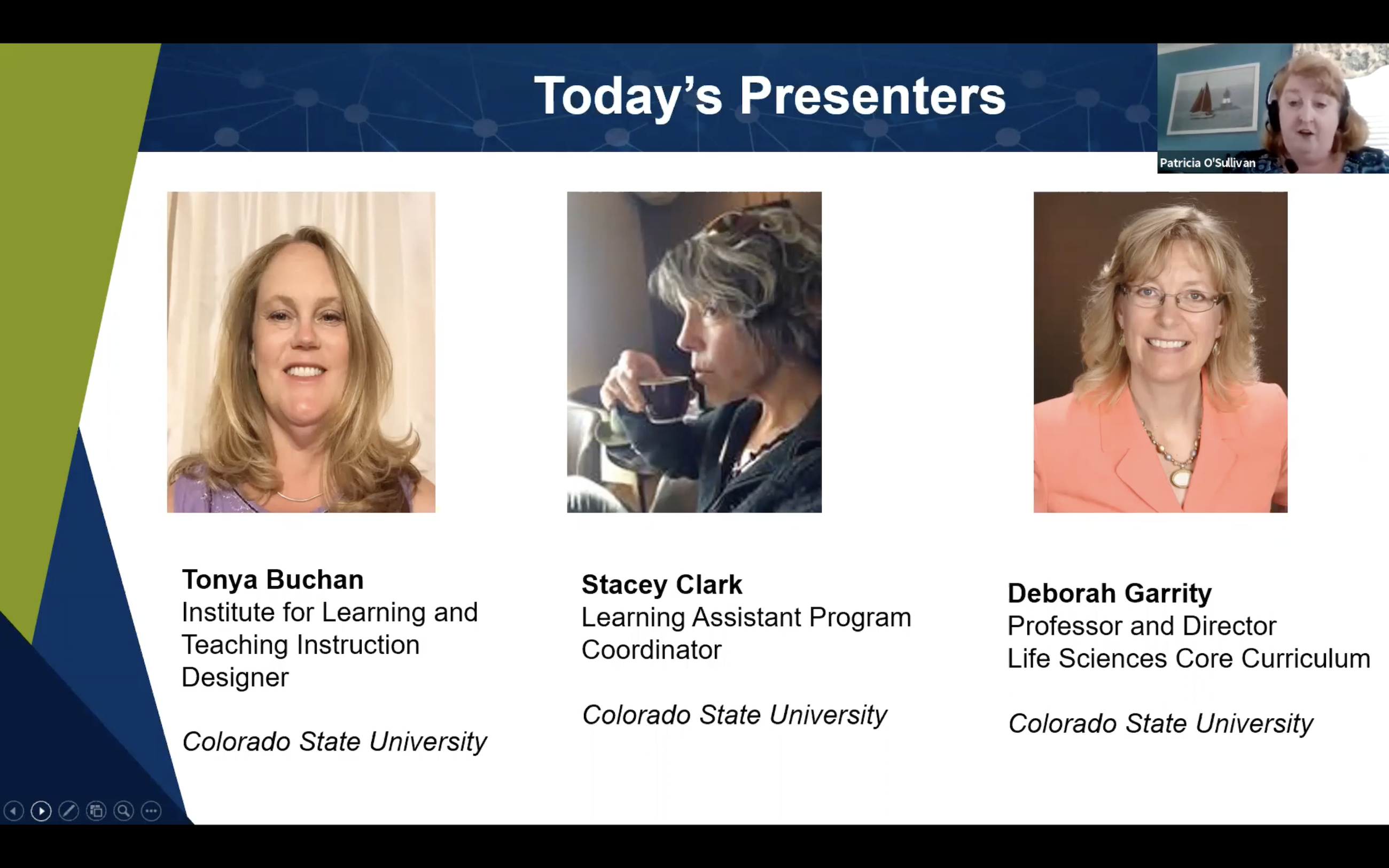
In this webinar, faculty and instructional support staff share a model for student success with undergraduate learning assistants.
























































